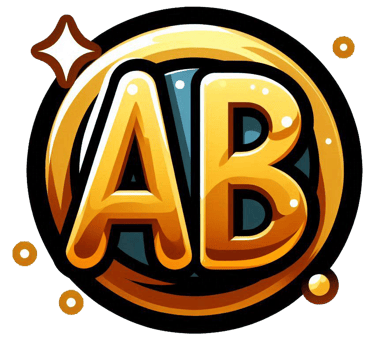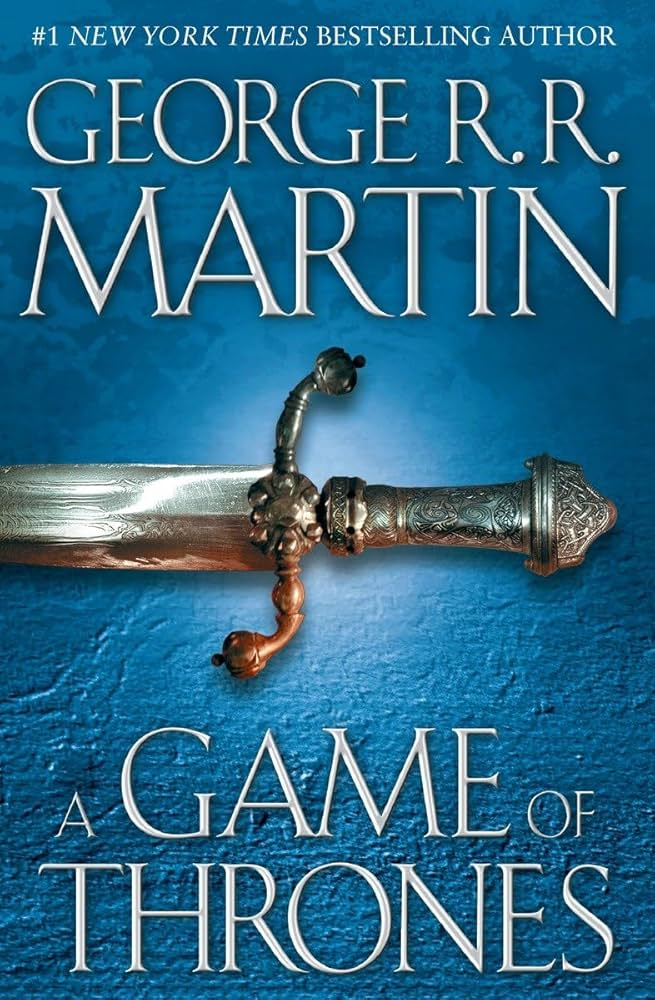

A Game Of Thrones
★
We honestly can barely believe this series was widely praised as it was. How it became popular is understandable since much of today's culture enjoys committing disturbing acts. The book itself was both overrated and deeply troubling, especially to the younger audiences. And we strongly advise against reading or watching it. First and foremost, the sheer amount of graphic violence, perverted content, and cruelty in this book is overwhelming. The cast of characters were bloated, and many were interchangeable in their ambitions. Almost every chapter either introduced a new name or subplot that often lead to more misery. There's no rest, no joy, no redemption. It was just endless manipulation, war, and suffering. It’s dark, indulgent, and far too brutal for the mind. The violence itself often feels less like storytelling and more like shock value for the sake of keeping readers glued. Scenes involving extreme savagery, especially against women and children, cross the line from narrative device into exploitation. If you're not understanding, it's the normalization of these horrors that desensitizes the minds of the reader. Worse still is how little hope or morality exists in Mr. Martin's world. There’s no balance, well-natured characters are punished, and the evil ones are rewarded or celebrated for their cunning acts. We understand that Mr. Martin wanted to avoid the typical “hero’s journey” tropes. Yet the way he went about it was all wrong; the result was a story devoid of meaning, and betrayal are corruption are glorified rather than looked down upon. The lack of clear moral grounding also made it difficult to care about anyone or anything in the story.
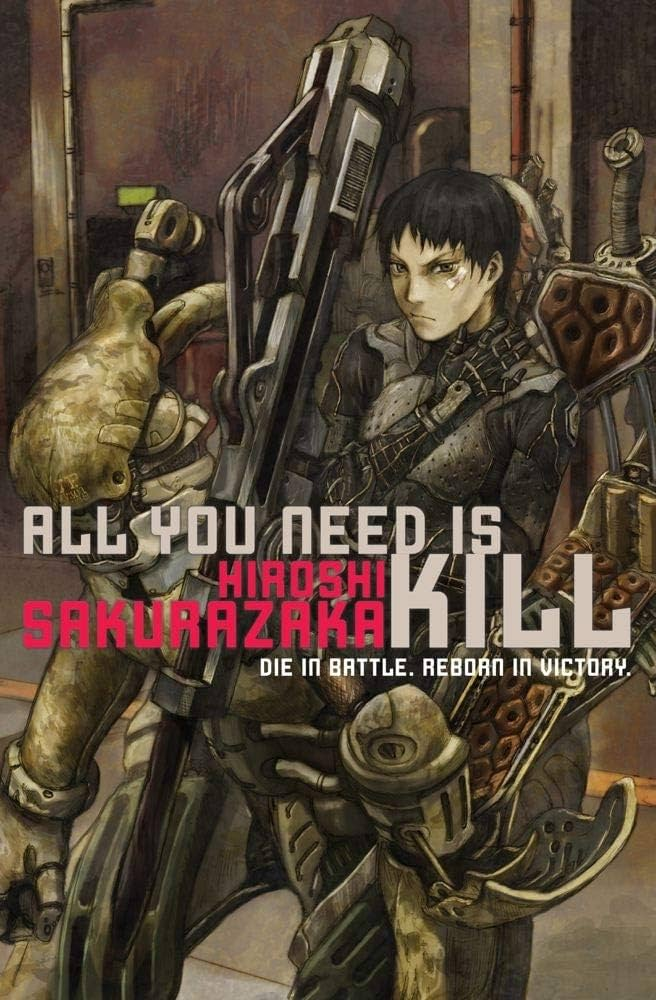

All You Need Is Kill
★★★
The premise of this book only intrigued us because the plot had time loop in it. The story of a Japanese soldier fighting an endless war against devilish invaders was hardly a hook. Keiji Kiriya experiences the same day over and over, growing with each death. His reactions felt only a little authentic, and seeing how his Japanese background influenced his responses added some depth. But, as much as we wanted to get caught up in the loop, it quickly became (literally) repetitive and slowed the pace of the story. The war against the Mimics was what really killed this book. Things just didn’t feel fully developed. The military world-building also didn’t do enough to raise the stakes, and the Mimics themselves had no personality or colour to them. While the action scenes were decent, they lacked the emotional weight we hoped for. Interestingly enough, this book did have a little romance in it between Keiji and female lead, Rita Vrataski. Yet it by no means resonated like what one would expect. It was underdeveloped at best, adding just a bit of development to the story. Truly, it was a subplot rather than something integral. The ending, though bittersweet, left us with mixed feelings. It was more sorrowful than satisfying. We also felt the movie and manga adaptations didn’t fully do justice to the book. In the end, it was an average read at best. Not at all remarkable. Giving it three-stars was us being generous due to how far the novel progressed with its manga and film adaptations for Westerners.
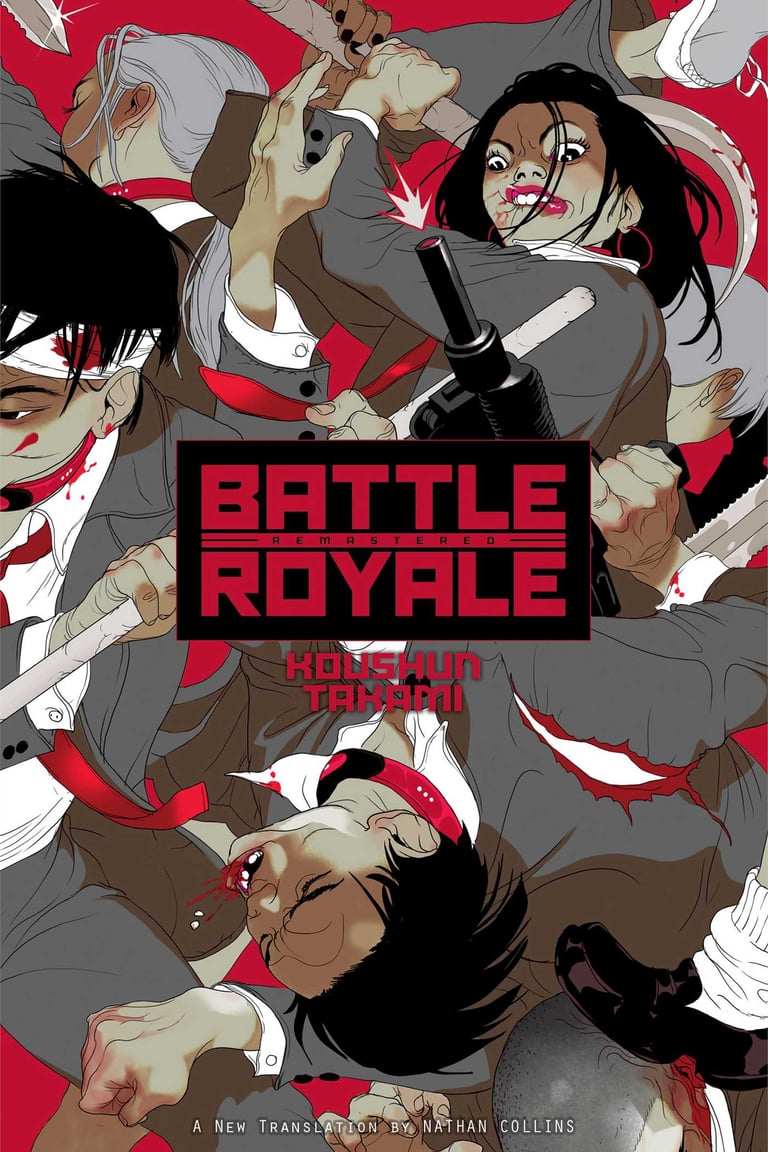

Battle Royal
★★
We only somewhat struggled with this book. The premise seemed intriguing at first—a brutal, high-stakes game where teenagers are forced to fight to survive. But as we dug deeper into the story, we were left with a strong sense of discomfort, mostly because of the excessive violence and gore. It was just a lot to take in, and honestly, it overshadowed any potential for meaningful storytelling. The level of brutality is far too overwhelming for a young mind. Almost every chapter introduced some new, graphic death with teenagers being violently killed by their peers. It's hard to shake the image of kids in this savage fight for survival, especially when you see they’re relatable. It felt almost exploitative, like the story was relying too much on shock value rather than offering something more thoughtful. And honestly, it's concerning that the book is being marketed to younger readers, both in book form and as a movie. The depiction of children fighting each other in such a gruesome way doesn’t seem appropriate for kids, or even young adults, to engage with. Much like the Hunger Games, there’s a clear, disturbing message about survival and societal control. Things are so over the top that it risks desensitizing its audience to real-world violence, rather than encouraging any kind of meaningful reflection. That said, we can admit the author did manage to deliver a somewhat satisfying ending. There were moments of heroism, and the conclusion—while still dark—did offer a sense of closure. Yet it did not help balance the brutality of the story.
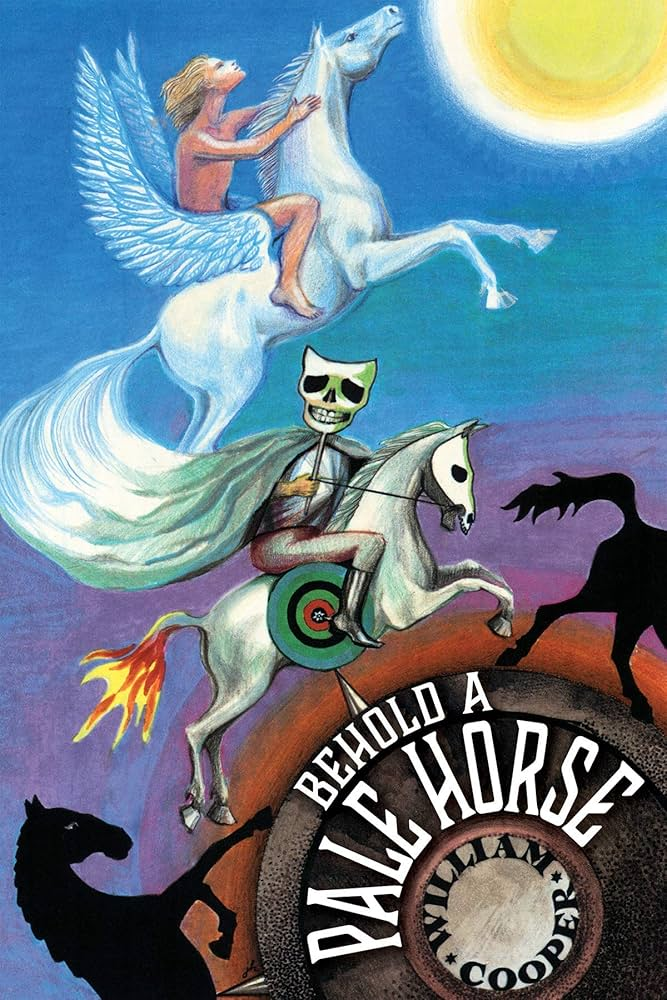

Behold A Pale Horse
★★★★★
In our view, a peak read. 5 stars without hesitation. It's one of those rare books that grabs you due to the amount of truth spread about the American government. Whether you agree with everything in it or not, there's no denying the impact it leaves. William Cooper died because of his beliefs, and he most certainly pulled his punches till the end. He challenged the status quo, asked hard questions, and forced readers to re-examine what they should think they know about their government and the many hidden agendas. In it, he stated declassified documents, personal testimony, and bold claims that some will find controversial. But! That’s exactly why the book matters. Cooper’s willingness to speak out and connect the dots that most wouldn’t dare to is what makes this a must-read. We cannot stress the importance of his testimony for those who have been doing their research in the conspiracy, or our an American citizen. Mind you that Mr. Cooper was raised in an American militarized household that vowed to protect their people. For such a person to have understood and go against such powers should be an eyeopener. In today’s world of media overload and filtered narratives, this book remains relevant over a lot of them. You don’t have to agree with every theory or conclusion to recognize its value, but the main aspect is that both the military and the government have been keeping secrets about the flying saucers from hell.
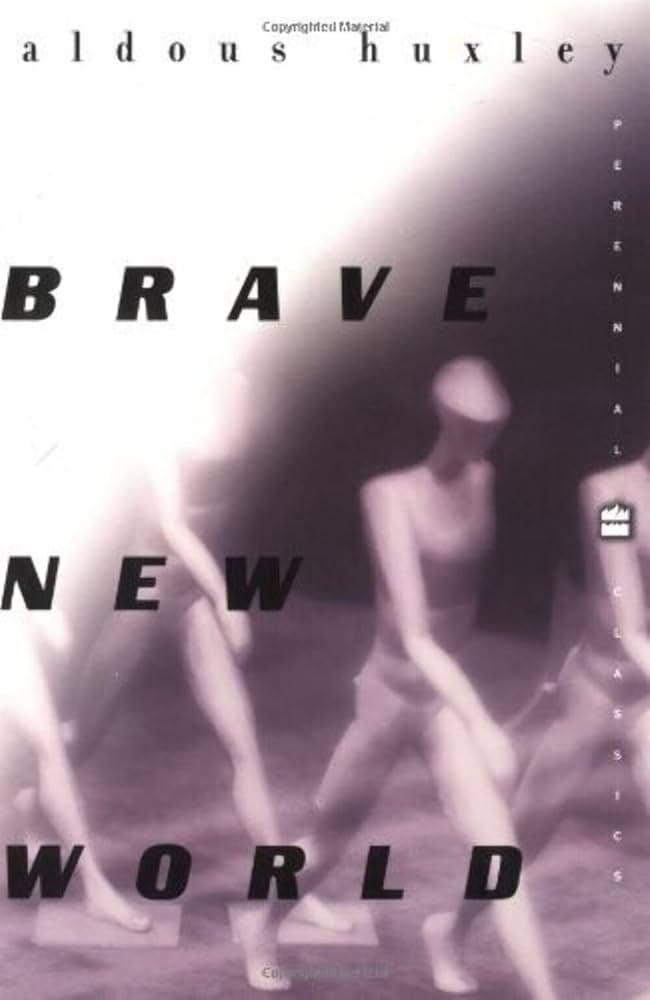

Brave New World
★
Aldous Huxley had to have an unsettling imagination to have designed this frustratingly prescient novel. Though it is widely considered a classic, both the book and its film adaptation was atrocious. We recognize the dystopian world Huxley paints—a society driven by consumerism, technological manipulation, and a sense of manufactured happiness. Our friends, this is evil. Not only are the characters shallow, but the plot feels like it was taken out of a Satanic bible. The most alarming aspect is how closely the conspiracy within the novel is mirroring our own world. Huxley revealed a time where governments, corporations, and media would work hand-in-hand to control every aspect of society! From reproduction to consumption, the wicked are going to implement this all under the guise of ensuring "happiness." We see the world becoming more and more like this every day, where genuine individuality is crushed by the weight of constant surveillance, pharmaceutical solutions, and the commodification of people's evil hearts. As the world leans ever closer to the kind of totalitarian, consumer-driven dystopia that Huxley wrote about, it becomes hard to ignore the uncomfortable parallels. What's even more disturbing is that the book is being taught to children in public schools. Or at least was during our generation. For a book that critiques the very systems of control that are increasingly shaping our society, its promotion to young minds seems ironic, if not dangerous.
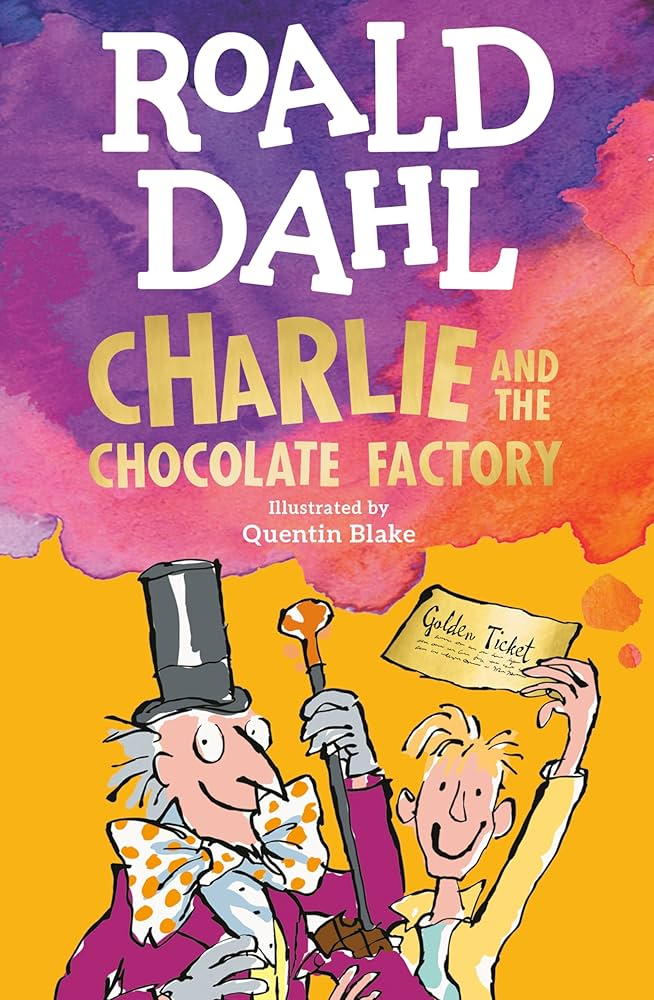

Charlie And The Chocolate Factory
★★
We were shocked at how disturbing this book really was once we looked beyond the surface. Sure, it’s sold as a whimsical adventure for children, but there’s a darker side to it when reading with a more critical eye. Roald Dahl’s world of Willy Wonka’s factory is filled with strange undertones that was demoralizing for kids. First off, the whole premise of the children being "chosen" for the factory feels like a weird form of manipulation. They’re promised a magical experience, but what they actually get are bizarre and often cruel punishments, with Wonka acting more like an abusive father figure who hands out strange and unearned consequences. It’s not really a lesson about good behaviour either. What message was actually conveyed was a twisted version of “don’t get caught being bad.” The fact that these kids are punished for things like greed or gluttony feels like a moral lesson gone too far, where they face physical danger, like being “sucked up” by pipes or falling into molten chocolate, rather than just being told to behave. But what really stands out are the more insidious undertones. Wonka’s role feels almost predatory. He invites children into his bizarre, over-the-top world, with no clear parental supervision. The fact that the audience is kept them isolated in his factory without any supervision around is deeply unsettling. It’s almost like both the kids and their parents are being lured into a dangerous space, with no warning of the risks they’re about to face. We can easily see the pedophile themes, such as the subtle moments that suggest an inappropriate relationship between Wonka and the children. He holds the power, controls the factory, and leads his captives into bizarre and often traumatic situations, all while maintaining a façade of “fun” and “whimsy.” The more one thinks about it, the more the story shows punishment dressed up as a fairy tale.
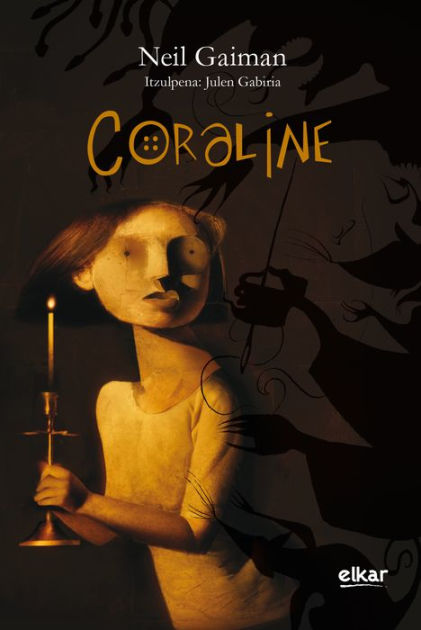

Coraline
★
We can barely comprehend why anyone would want to craft such a nightmarish book like this one. The story is disturbing, with a dark and twisted world that felt more suited for a horror novel than something aimed at children. Any child who'd seen this would have more likely been scarred in their young minds than entertained. The visual adaptation and the animated movie was no better. If anything, it worsened the eerie and sinister tone of the book, making the experience even more disturbing. The decision to turn it into a film was, frankly, a terrible idea. It’s a story that should’ve never come into existence in any form. As for the main character, Coraline herself, she was not at all relatable. She came across as selfish, irritating, and far too flawed in ways that made it difficult to empathize with her journey. The author’s portrayal of her just made the story even harder to connect with. Whatever category this book fell under, nightmare would suit it best. Consider the notion of children being led away into a fantasy land where some of their dreams come true, only for those children to lose not just their eyes but also their souls to someone pretending to be their mother. Mind you, this premise is no different than what most Satanic occults do to new recruits. We're starting to understand where the author got the idea of the book from. They, and any reader following this the type of material, should repent and never write anything as unpleasant as this again.
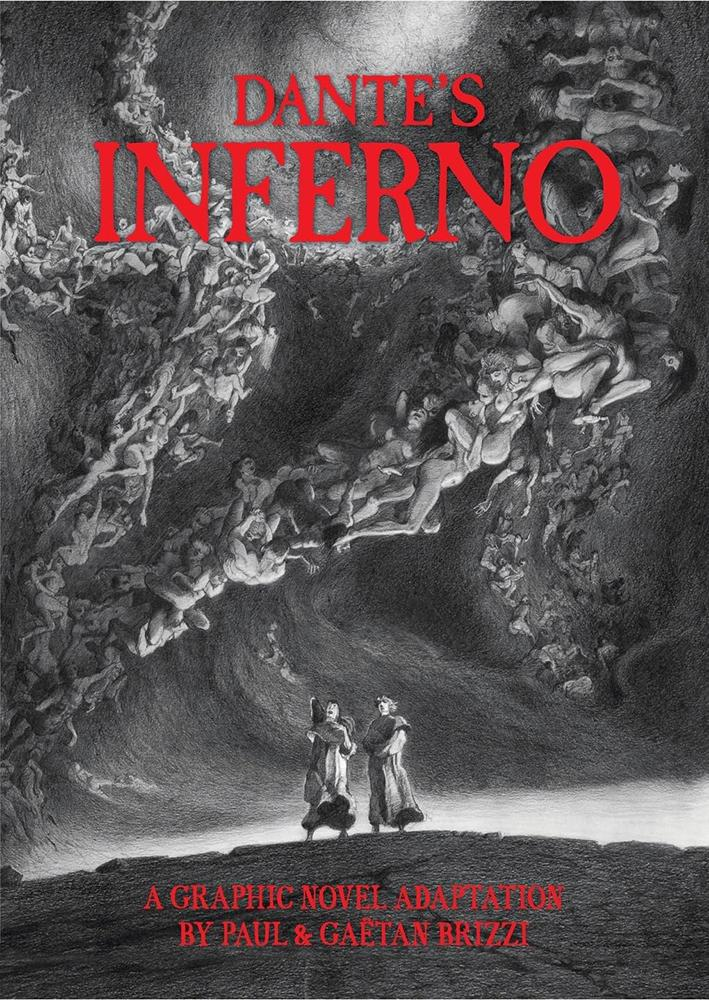

Dante's Inferno
★★
This is not a book to be read in churches. Preaching on it is more appropriate. Of course, not to children who aren't ready. The book painted an interesting picture of hell (sheol), but we all felt it only showed part of what hell truly is and how damned souls enter it. We can't deny that Dante’s vision was poetic and a little intense due to its contents. The way the book described punishments and the structure of hell felt more like Dante’s own creative interpretation than a faithful reflection of scripture. Despite that, we couldn’t ignore the underlying truth the book touched on: that Hell exists, and unrepentant souls will face eternal punishment in the lake of fire if they do not accept Jesus Christ as their Lord and Saviour. These are biblically taught facts that the author seems to have forgotten about. Dante’s work helped us remember the seriousness of divine judgment, even if it didn’t capture every detail perfectly. An interesting read to see things from another's perspective, especially for adults who enjoy exploring different ideas about what happens to those after death. However, we agreed it was not suitable for children in church because the imagery can be quite graphic and the story’s theology isn’t fully aligned with biblical teachings. It might confuse young readers or give them a distorted idea of what hell really is. Still an imaginative read if approached correctly. If taught in churches, things need to be biblically grounded; otherwise, it'll spark unnecessary controversy.
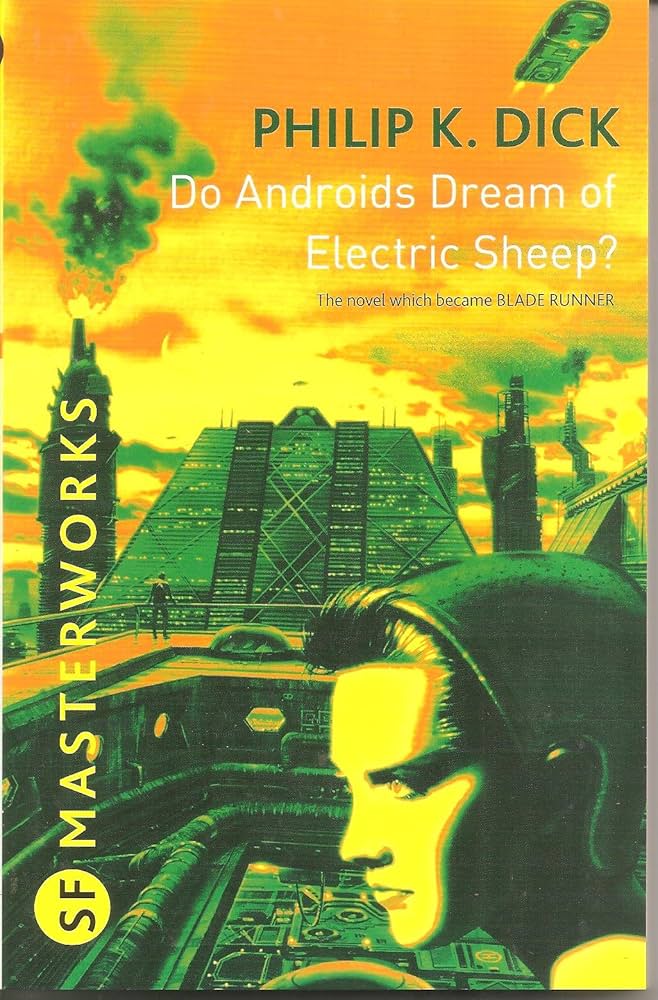

Do Androids Dream Of Electric Sheep?
★★
We weren’t huge fans of this book. But we also can't deny how eerily accurate and conspiratorial the book feels, especially in today’s world. The novel is a gritty exploration of technology and the moral questions surrounding artificial creations. While we found it a bit dense at times, with its philosophical musings getting in the way of the story, there's no ignoring how prescient Dick’s vision was. Many aren't aware of what's happening around them (in real life). The book therefore tries to show how real people lose touch when granted access to such devices. The way Dick dives into commodification, the erosion of empathy, and the disillusionment of this world is very similar to the window of our own society. The rise of AI, the growing influence of corporations, and the way people are becoming more disconnected from each other is already taking place. Yet despite all of this, the masses don’t see much of anything. The whole "androids as disposable labor" aspect, which seemed like speculative fiction at the time, is now something is now something taking (and has been) thanks to the rise of automation and artificial intelligence. Seriously. People are turning more to tech than showing a genuine connection with others. That said, the book didn’t fully grab us due to its philosophical ramblings. And whether Dick wrote this book or not, it's undeniably haunting with a touch of conspiratorial nature that further questions what sort of world we're walking in. Lastly, when watching the movie adaptation, Blade Runner, it's important the viewer is aware that these androids can and do get spiritually possessed by devils.
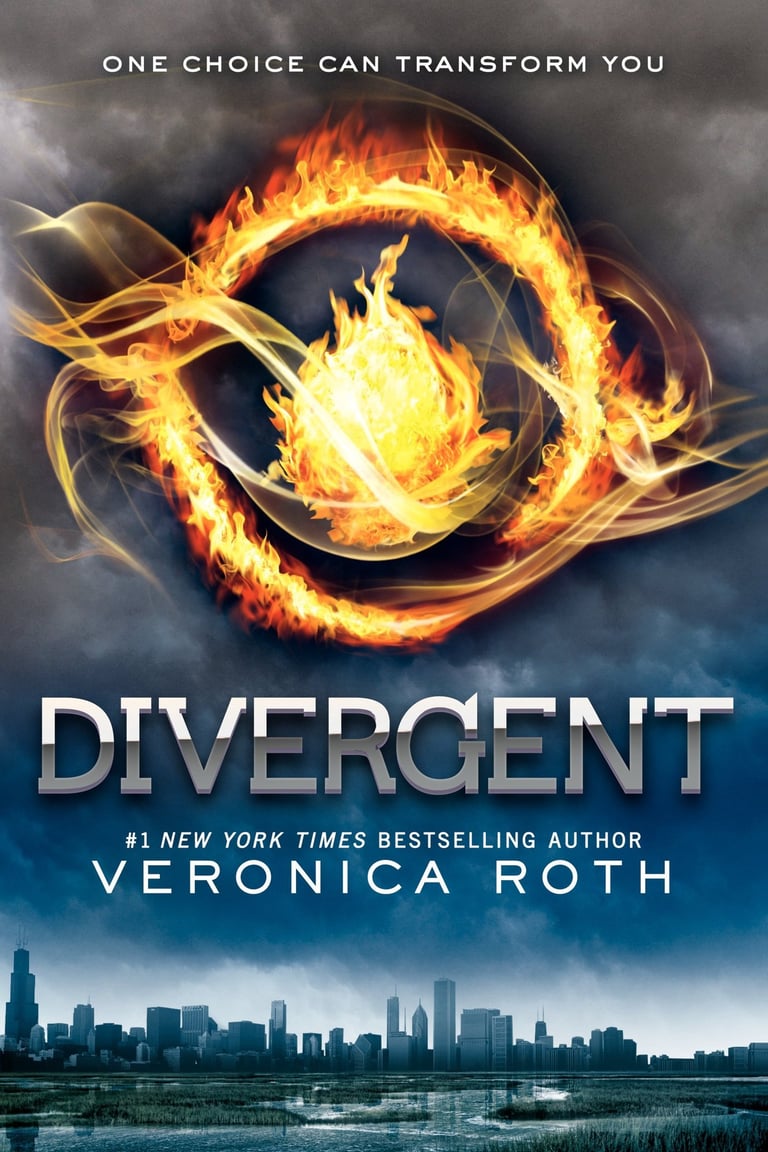

Divergent
★
We went into Divergent with cautious optimism. Much like the Hunger Games, it’s a bestselling dystopian novel with a strong female lead and a not-so intriguing premise. The book delivered a story that feels cliché, and frustratingly shallow. The faction system, which divides society into personality-based groups (Abnegation for the selfless, Dauntless for the brave, etc.), is an interesting concept on paper. But in practice, it falls apart quickly. The logic behind it made us question why would a society reduce one's identity to just one trait, then punish anyone who doesn’t fit neatly into a box? It felt more like a contrived plot device than a believable world-building foundation. The idea of “Divergents” also being dangerous because they exhibit more than one trait is never fully developed in a way that makes sense. Even after the final book. As for the characters, Tris starts with some promise, but her development feels inconsistent. She’s portrayed as brave and independent, yet often makes impulsive, reckless choices that seem more about moving the plot than genuine growth. The romance in the story also lacks emotional weight. There was simply no authentic chemistry between her and her lover, and their interactions sometimes felt awkward or just plain unnecessary. By the time the big twist comes, it feels more like a shift in genre than a meaningful conclusion. The ending, meant to be dramatic, also felt unearned. While this dystopian should have brought more clarity into the society faster, it didn't quite have any real substance to back it up. In short, we didn't care why this world failed; we just preferred for it to have succeeded.
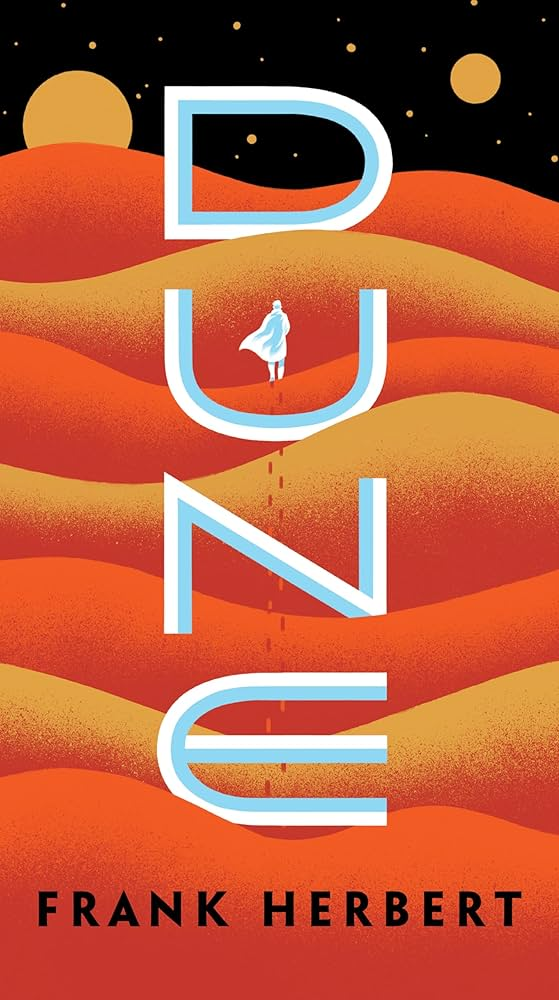

Dune
★
We weren't all too excited to dive into this series after hearing about the hype. And honestly, we were right to think this since we were completely disappointed. Frank Herbert’s world-building was overrated, and almost everything was painfully slow. The plot, which was supposed to be intricate, was more like a maze with no clear exit. Instead of feeling immersed, we just felt confused and bored. The characters were flat, especially Paul Atreides, who was portrayed as this legendary figure but lacked any depth. His “growth” felt more like a forced checklist than any real development. The writing itself was a slog. Herbert threw in a bunch of philosophical musings and made-up terms that only served to complicate things. It felt pretentious, like the author was trying to sound profound but ended up alienating readers instead. The books were often preachy (and not the good kind), with whole sections that felt like lectures about power, false religion, and ecology. It was more like the author was trying to make a point at the expense of good storytelling. The worst part's been said. Now comes the disturbing part: it was directed at our youth. Dune is by no means something you’d want kids to watch or read. The violence is gratuitous, the themes are heavy and bleak, and the whole thing just felt toxic. The manipulative politics and endless betrayals aren’t lessons kids need. It’s definitely not even something that adults should get into. But in this evil world, a series like this is being marketed as some kind of epic, mind-opening adventure. We regret investing our time in a series that promised so much and delivered so little. Definitely not the perfect piece of art people tried to make it out to be.
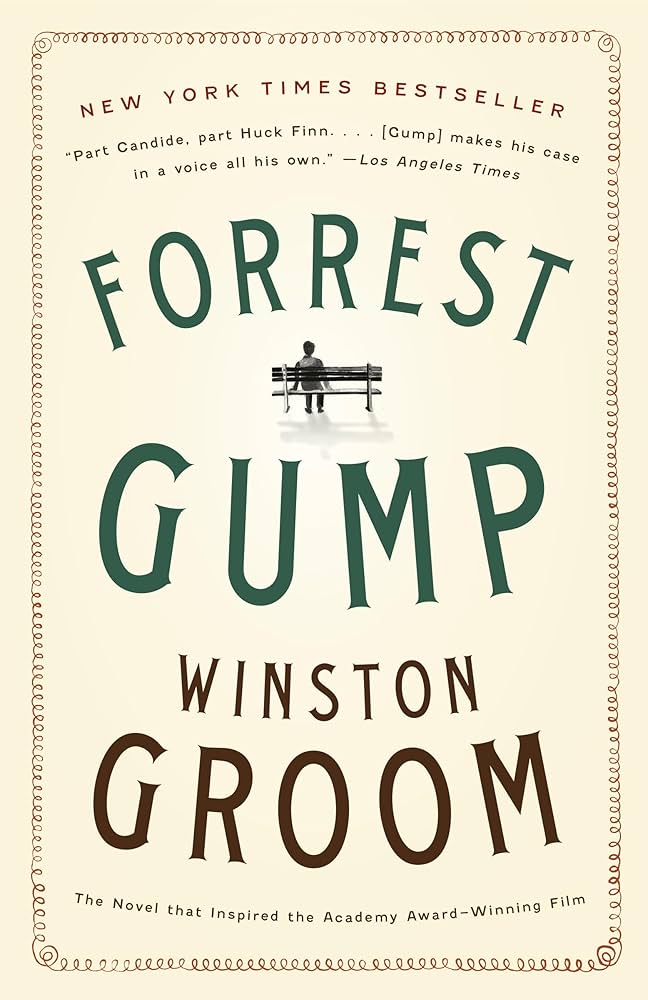

Forrest Gump
★★
Maybe we missed something with this book since we only found it average at best. The story had potential, but it fell short in too many areas to be considered truly memorable or worthy of the praise it’s often given. The premise of an unlikely hero with a simple heart, navigating through some of America's most pivotal moments, could have been a rich exploration of innocence amidst troubling times. Instead, the book often felt repetitive and relied too much on Forrest's naïveté as a way to avoid more complex storytelling. While things did have some charm—particularly in how Forrest’s unfiltered take on the world created moments of dry humor—it didn't dig deeply enough into his character. The other characters were also very flat and underdeveloped. They came and went as background pieces to his journey, never really given the space to feel fully realized. The narrative also struggled with pacing. Some parts felt rushed, while others dragged on unnecessarily. There were times when the novel seemed to be trying too hard to make Forrest's life seem like an epic adventure, but it ended up feeling more like a series of disconnected events strung together with little purpose. While the movie adaptation was iconic thanks to that devil worshipper Tom Hanks, it didn’t improve on the book. The movie simply leaned into the sentimentalism, which, while effective for an audience looking for feel-good moments, didn’t capture the full range of what the book could have offered. We'll end things here by stating that neither lived up to their reputation.
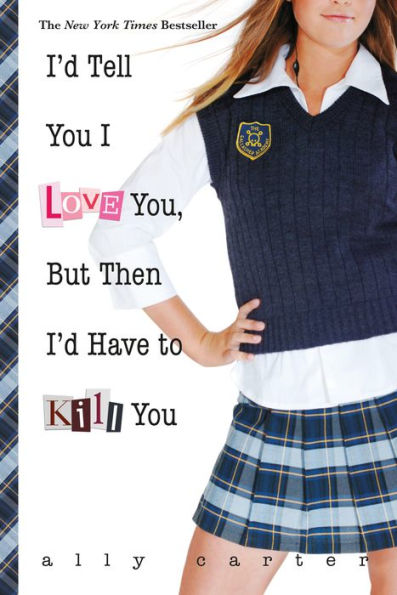

Gallagher Girls
★
We didn’t connect with this series for a few reasons. While the premise of a secret school for spies seemed exciting, we found the execution lacking in depth. The characters felt one-dimensional, especially the protagonist, Cammie. Her internal conflicts didn’t feel genuine, and her relationships with the other characters didn’t develop in a meaningful way. We expected more growth, but the characters seemed stuck in repetitive patterns. Most of their missions were also extremely lame. The plot, while trying to be engaging with its spy missions and mystery elements, often felt predictable. The pacing dragged at times, and the constant focus on romantic tension overshadowed the more interesting aspects of the story. It became hard to care about the stakes when the main characters spent more time thinking about boys than solving the bigger problems at hand. Additionally, the world-building didn’t feel fleshed out. The idea of a spy school had a lot of potential, but it never fully explored the complexities of such a place. The rules of the school, the mission structures, and the overall atmosphere seemed underdeveloped. Things were so bad that we couldn't continue past the second book. The twists didn’t feel earned, and things simply didn’t offer enough closure to feel satisfying. If anyone dares to read or write a series about spies, they should at least be vey thoughtful about how character development and plotting works. Spies are real, but they're not girly girls prancing about ridiculous misconception of boys.
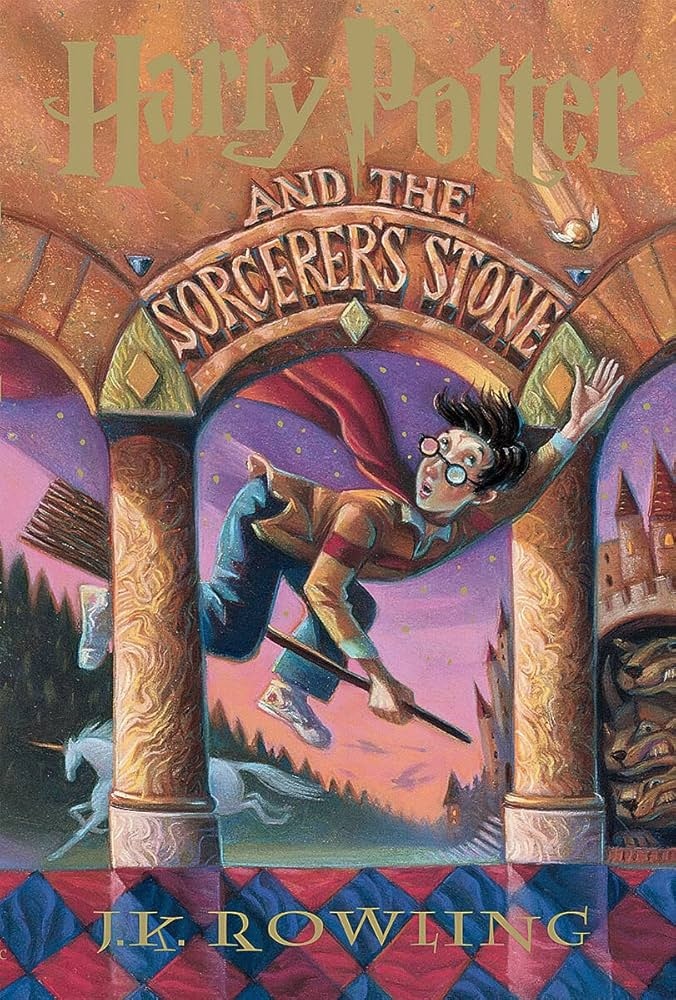

Harry Potter
★
We feel compelled to speak out about the dreaded Harry Potter series, a work that we deeply regret reading. While it has captured the imagination of millions around the world, we cannot ignore the serious concerns it raises from a biblical perspective. Our discomfort with the series is rooted in its use of real magic spells and the promotion of witchcraft. All such themes are against the teachings of Christ. The magic words, incantations, and potion brewing in Harry Potter is by no fictional or allegorical; it’s actually real, something witches embrace the author for having published as a children's fantasy. It is therefore needful for us to warn everyone that the practice of witchcraft and sorcery is strictly forbidden in the eyes of the Lord. The magical world J.K. Rowling created is nothing more than a reminiscent of occult practices. There have even been rumours about J.K. Rowling’s involvement with the devil to bring this series in existence, with claims that she sold her soul in exchange for success. Many also believe that she never wrote the series to begin with. Whether or not such things are true, the spiritual implications of such content cannot be ignored. We urge fellow Christians to steer clear of Harry Potter and to protect the children, less they inevitably engage in the occultic behaviour that real witches undergo. Let not thy children be tempted into watching the movies, reading the books, or joining their cultural, which does not align with true virtue.
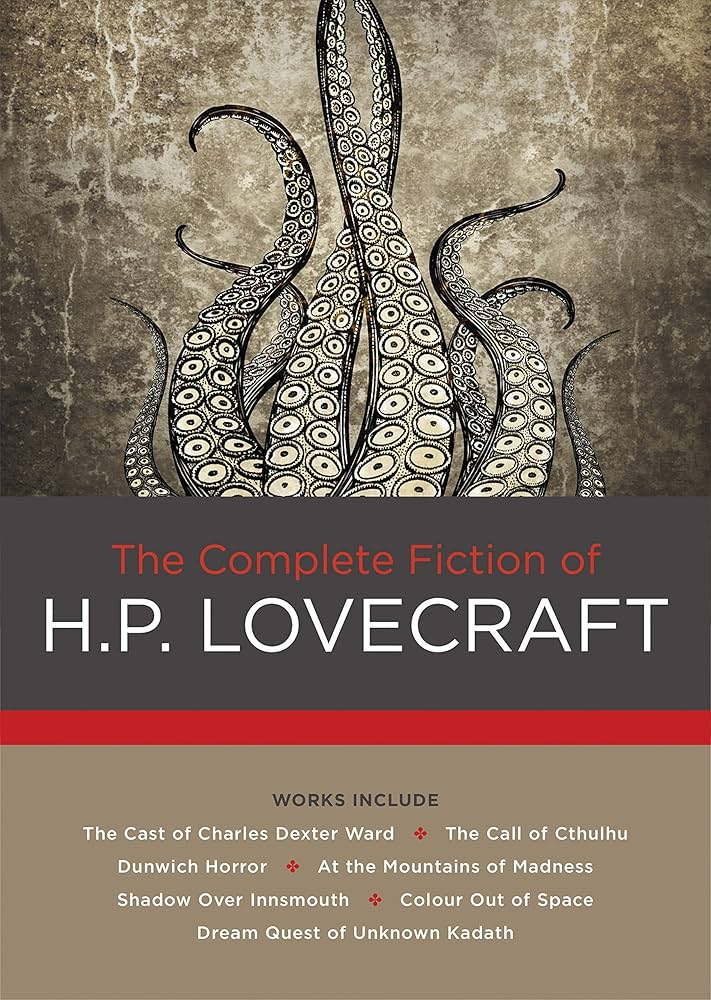

H.P. Lovecraft
★
After coming across these collection of stories by H.P. Lovecraft, we honestly did not enjoy the experience. From the very beginning, the atmosphere was heavy with darkness, dread, and hopelessness. The stories were full of occult themes, idols, devils, and forbidden knowledge on magic. None of these things are ever meant to be read by adults or children alike. In fact, the book to glorifies fear and the unknown plaguing the masses today, offering no hope, no redemption, and certainly no acknowledgment of Christ our Lord. What troubled us most was how deeply rooted the stories were in occultic ideas and spiritual darkness. The characters often dabbled in rituals, summoned evil beings, or fell into madness after discovering some terrible truths. It became clear that Lovecraft’s universe had no place for good, only a cold, terrifying indifference, and outright evil. We cannot stress enough how real the Necronomicon book is. While we understand Lovecraft has had a major influence on horror literature, we didn’t find anything uplifting or meaningful in his work. There was no moral clarity and no real sense of justice. Most of his work just spread despair. So much so that even the occultic members from other secret societies were after him for having divulged knowledge about their idols. We would not recommend this book, especially not to younger readers or anyone sensitive to spiritual influences. While it may be considered a classic in literature, it is certainly not something we felt comfortable reading or could ever endorse. We left the book feeling spiritually heavy, and more convinced than ever of the importance of guarding our hearts and minds.
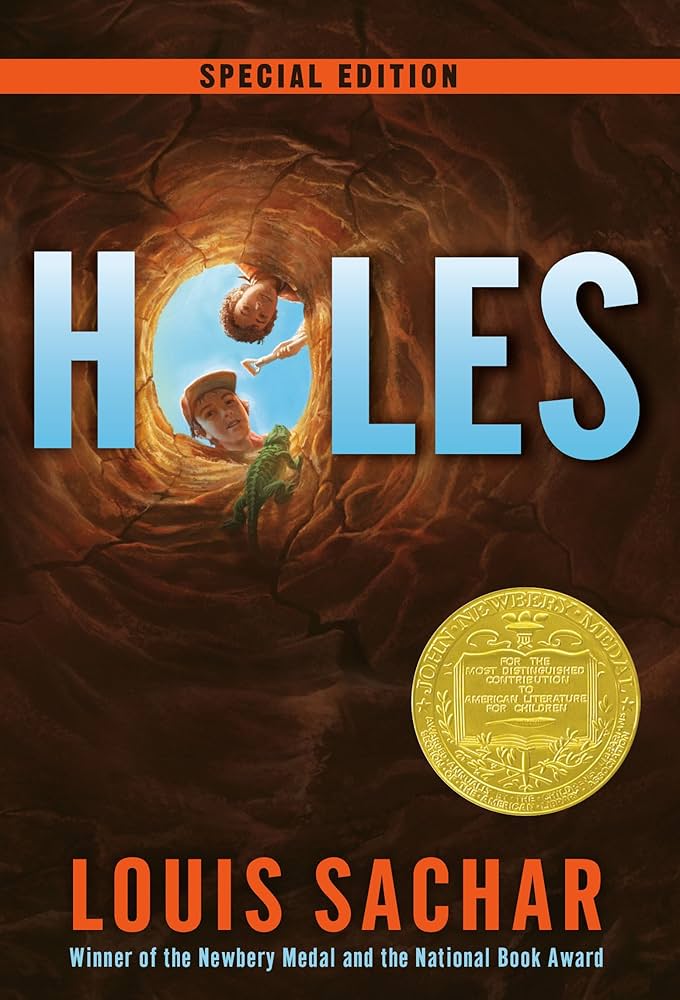

Holes
★
We didn’t really connect with this one. Neither the book nor the movie adaptation. The story of Stanley Yelnats, sent to a camp where kids are forced to dig holes, had an interesting setup, but it didn’t pull us in. The book's quirkiness felt repetitive and didn’t dig as deeply into its characters or themes as it could have. The twists also didn’t feel earned, and the pacing was uneven. It’s hard to get invested in a story where the stakes don’t seem high enough or the characters don’t seem fleshed out enough to care about. The movie didn’t help matters much either. It felt rushed and lacked the charm that was supposed to make the book memorable. While the plot is certainly bizarre and could have been interesting visually, the film’s pacing was off, and the performances didn’t bring out most the characters. Don't get us started about the humour. Hardly any of it translated to the narrative. The stereotype that African American youths start off as illiterate thieves was also offensive. Sure, that character did get redeemed, but he still remained an anomaly of for those who suffer in that community. Meaning, not everything can be fixed because of a curse. Once Holes became part of the school curriculum, it took away any chance of enjoying it for what it was. The franchise became less about the story and more about ticking boxes for non-educational purposes which many students wouldn't have understood. Be it the movie or the novel, everything was compacted into a lackluster story that remained unimpressive.
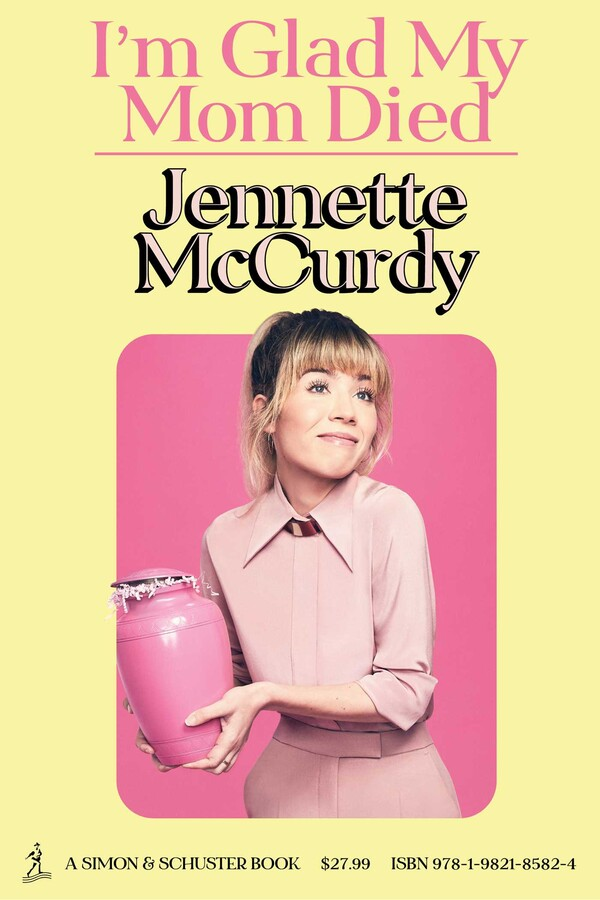

I'm Glad My Mom D***
★
As a group, we came into Jennette McCurdy's memoir with mixed feelings. Having grown up watching her on iCarly, we thought she was always a pleasant presence on-screen, even though her acting, particularly on that show, was very corny. Still, she had a certain charm that made her stand out. We saw potential in her career, one that could’ve flourished if she had made different decisions along the way. That said, we found the book troubling to read. Jennette’s portrayal of her relationship with her mother, and the claim of emotional abuse, is something we simply can't agree with. While it’s clear that her mom played a very controlling role in her life, the blame for the circumstances Jennette found herself in falls on both sides. Being a child actor in such a public, high-pressure environment comes with a certain set of challenges, and we don’t think it’s fair to place all the blame on her mother alone. The book also mentions Jennette's relationships with Miranda Cosgrove and other friends, and she paints them as bad influences during her formative years. We disagree with Jennet's viewpoint and believe the mother was right on this one. Don't get us wrong. Being a Mormon only proved the ugly side of that religion. The whole premise was simply a complicated reflection on the price of fame, the cost of being a child actor, and the impact of toxic relationships. We don’t think Jennette’s mother was the sole villain in this story—both mother and daughter share the blame for not handling things better. Just because one's seemingly abusive mother died does not make it alright to slander their name in a book. Sorry, Jennette.
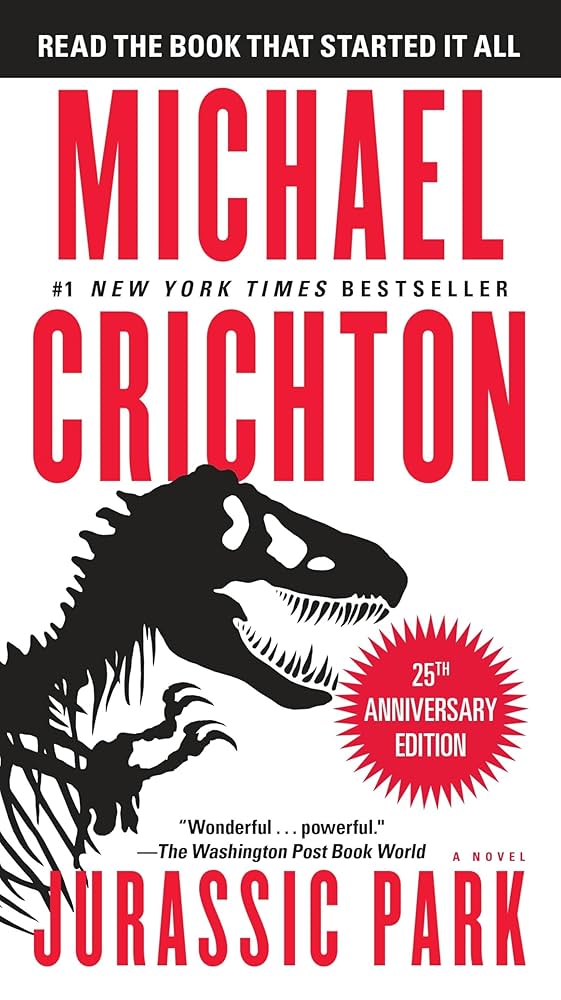

Jurassic Park
★★★★
Quite the trope of novels with an interesting premise, but ultimately, it didn’t deliver as well as the movie did. The book has its merits in terms of the technical and philosophical discussions about genetics and cloning, but it still fell short when it comes to the dinosaurs themselves. Crichton spends a lot of time exploring the science behind the park, and while that’s all fine and good, it doesn’t do enough to make us feel the presence of these creatures from hell. One of the biggest issues we had with the novel was that it didn't quite grasp the sense of danger that comes with encountering dinosaurs. In the movie, the T. rex’s first appearance is iconic because of how terrifying it is. But in the book, it felt more like just another obstacle in the plot. Crichton’s descriptions of the dinosaurs, while technically accurate, didn’t convey the raw, visceral presence these creatures would have had. It was more about the technology and the theory than about the creatures themselves. These types of creatures from hell are real, and there’s certainly more truth to the idea of them being hidden in secret parks than the mainstream media lets on. Is there a real park filled with dinosaurs in the world? By all means. But the location is beyond public knowledge. As for the movie, Spielberg captured their nature in a way Crichton couldn’t quite match. In short, the book was decent, but it only conveys half truths. We do urge those fascinated by dinosaurs to do legitimate resources that only relate to what's written of in the holy bible.
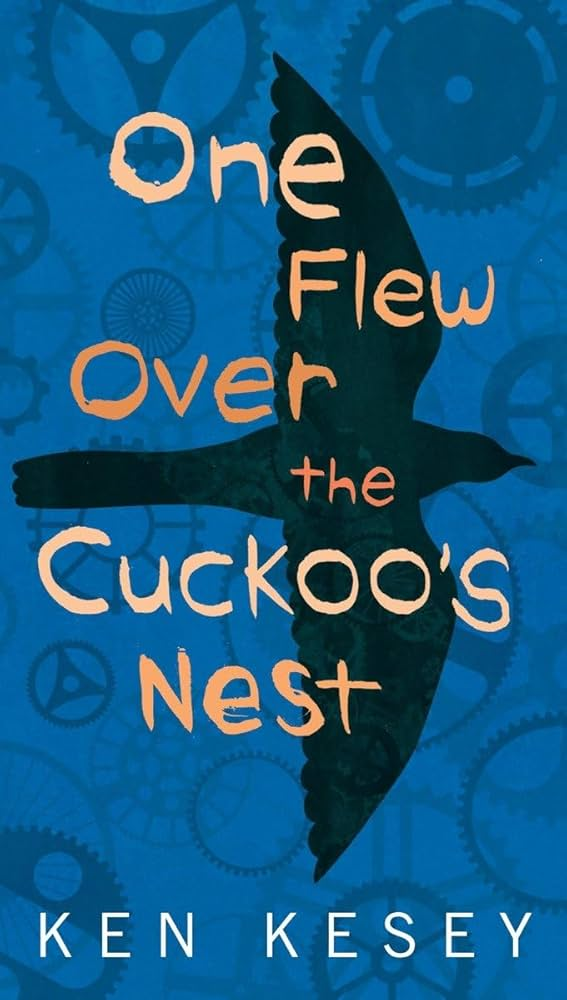

One Flew Over the Cuckoo's Nest
★
Such a disappointing tale by Ken Kesey. While it’s often hailed as a classic, we found it to be a problematic portrayal of mental illness and institutional business that doesn’t hold up to a reflection on what it actually means to be unstable. Rather than providing a nuanced or empathetic depiction of its characters, the book comes off as a dark, almost satirical comedy at the expense of people dealing with serious mental health issues. The characters, especially those in the mental hospital, are painted in such broad, almost caricatured strokes that it’s hard to take them seriously. Instead of showing the complexity of mental illness, we see exaggerated, one-dimensional portrayals of people who, for the most part, don’t experience any real growth or redemption. Many of the patients are stuck in their trauma, with no real sense of progress, leaving them demoralized and hopeless by the end of the novel. What’s worse is that these characters are treated almost like punchlines. By this, we mean that the author was mocking them rather than engaging with their struggles in a meaningful way. The staff, particularly Nurse Ratched, are similarly flat and one-dimensional, portrayed as cold, manipulative villains without any depth. The narrative itself missed the opportunity to explore the complexity of the relationship between care providers and patients. Instead, we’re left with a kind of us-vs-them dynamic that felt overly simplistic and unhelpful in understanding the truth behind one's mental health. What’s particularly troubling is that this book was being taught to students in schools.
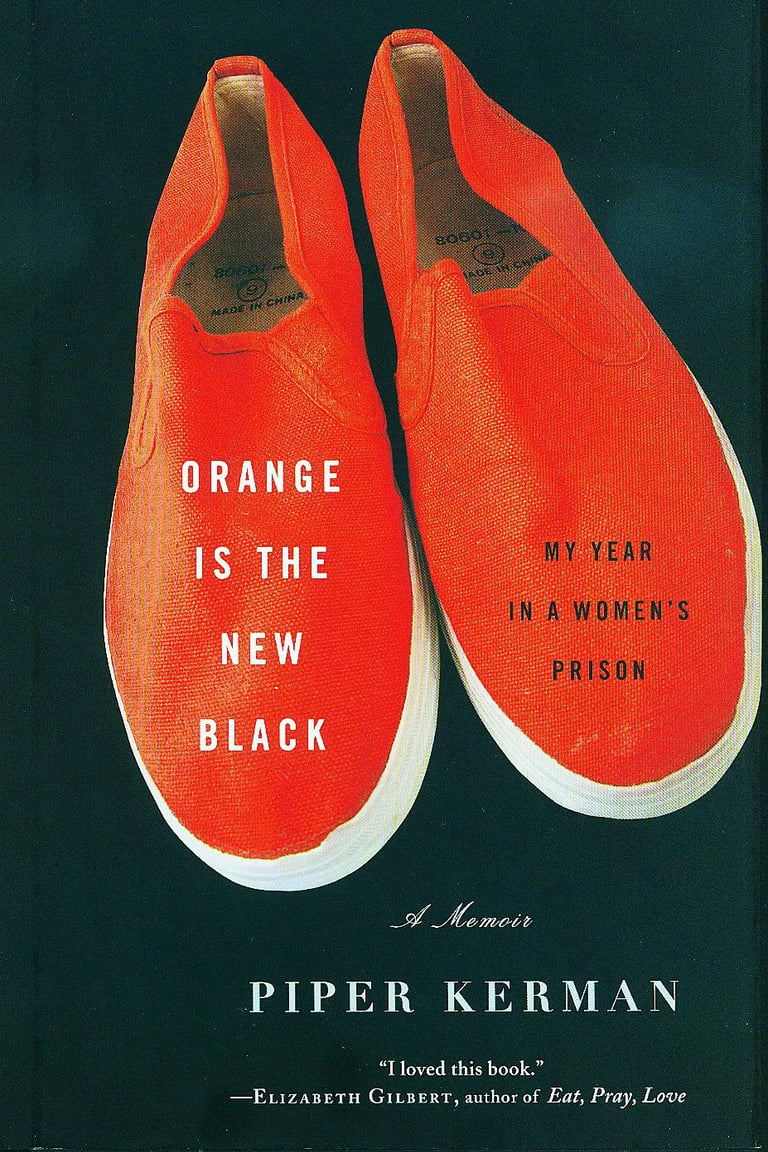

Orange Is The New Black
★★
We were pretty disappointed with this one. The book had potential, but it didn’t fully capture the complexity of the female inmates’ experiences. Kerman’s writing often felt superficial when it came to exploring the inner lives of the women she encountered. Rather than digging into their unique stories and struggles, the author seemed to rely too heavily on stereotypes. Many of the women came across as one-dimensional, like they were reduced to their worst traits, making it was hard to see them as fully formed people. The biggest issue for us was how Kerman failed to explore the emotional and psychological aspects of being in prison. While the book did give a glimpse into the daily life behind bars, it didn’t spend enough time reflecting on how these women were affected by their pasts or their time in the system. We didn't ask for more depth in their personalities, but we must certainly didn't want surface-level descriptions. These things create a lack of empathy for their experiences. This wouldn't be a review without mentioning the television series. Did it help the book? The short answer is no. The show took the basic premise of Kerman’s memoir and turned it into something flashy and exaggerated. Instead of making the book's core message about systemic issues and the lives of incarcerated women, it played up the drama and exaggerated the stereotypes even more. The show’s focus was more on entertainment value than on genuinely representing the complexities of the characters' inner worlds. That's Hollywood for you.
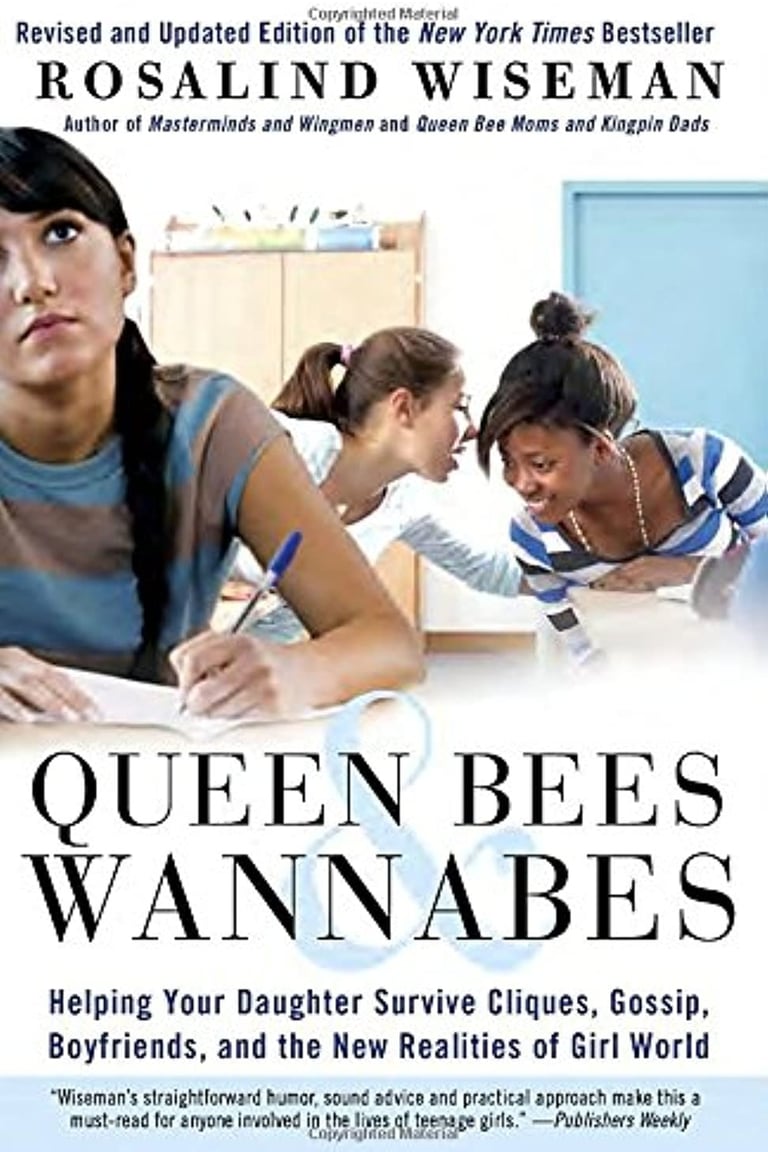

Queen Bees and Wannabes
★★★
We found both the book be an average read. Some parts were insightful, but others felt very off. The book does touch on some not-so-important topics, especially the pressures teenage girls face with cliques, gossip, and relationships. The main issues revolve on its advice on how to navigate high school. While yes, there is a social hierarchy in high school, but that doesn't mean the author truly understands what they hierarchy is. For example, the "cool" kids are most certainly not at the top. Regarding the book's overall content, it focused far too much on sensationalizing the drama. It seemed to emphasize the more perverted or exaggerated aspects of youths, which made it feel less like a guide and more like a tabloid version of high school. The stereotypes of "Queen Bees" and "Wannabes" are a bit too simplistic and don’t fully capture the complexities of how high school social interactions actually works. While the book did try to break down these social roles, it didn't provide a deep enough look from all perspectives. It seemed to oversimplify things without taking into account the emotional or psychological factors that drive these behaviours. How relationships between girls evolve was also overlooked. The tie-in to the Mean Girls movie didn’t help much either. But we can't deny that the movie was more for laughs that an actual teaching lesson. That being said, the acting was atrocious—much like the writing. While it made the book feel more relatable to a certain degree, it also made it feel less original.
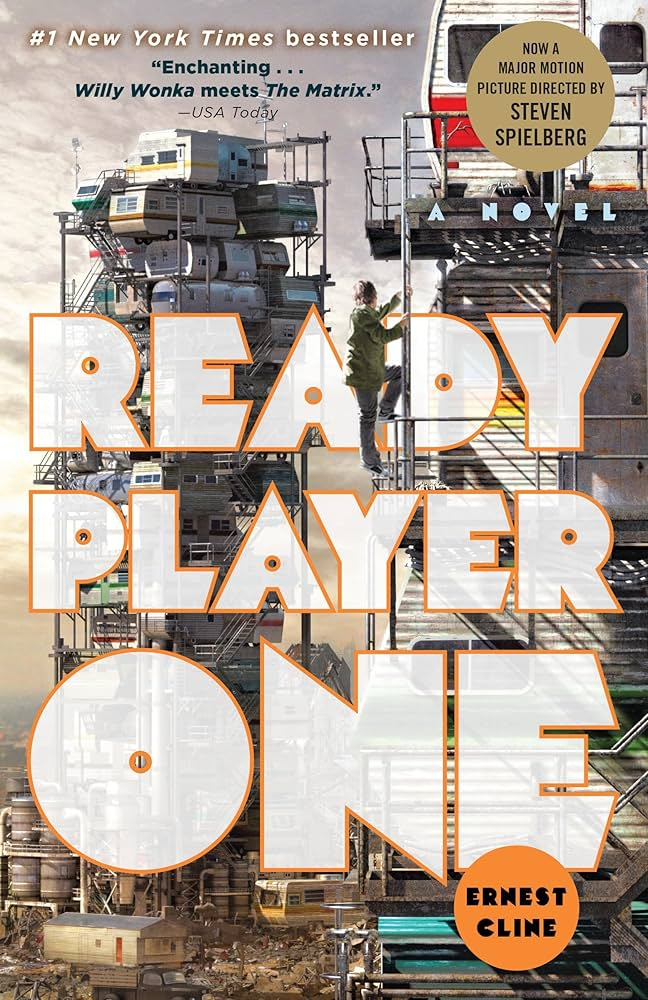

Ready Player One
★
We couldn't be more disappointed with this book. While it's praised as a love letter to gaming culture, the novel actually sends some dangerous and misleading messages to readers. First off, the way the gaming community is portrayed is downright disrespectful. The main character, Wade Watts, is far from a relatable or admirable hero. He’s an over-the-top, self-insert protagonist who wins the ultimate game and becomes a hero by outsmarting everyone thanks to plot devices. But this is not how the real gaming world works, nor is it how it should be represented. Video games are just fantasy world, while the novel is a dangerous narrative for anyone who might believe they can create a career or achieve real-world success simply by spending their days playing games. It discourages kids from pursuing practical skills, relationships, or even real opportunities. The idea that you can “escape” into a virtual world and make it big there is a fantasy that does more harm than good. Worst of all, the book glamorizes the idea of addiction to video games, painting it as a way to achieve social status. It makes readers (specifically gamers) think they can build themselves without effort beyond leveling up in a pixelated world. That’s not how the world really works. Because of the Gary Stu aspects, it perpetuates the illusion that everyone in the gaming community will eventually be discovered for their talents; when in truth, most people in the gaming community are just regular folks who often struggle to find meaningful opportunities outside of gaming.
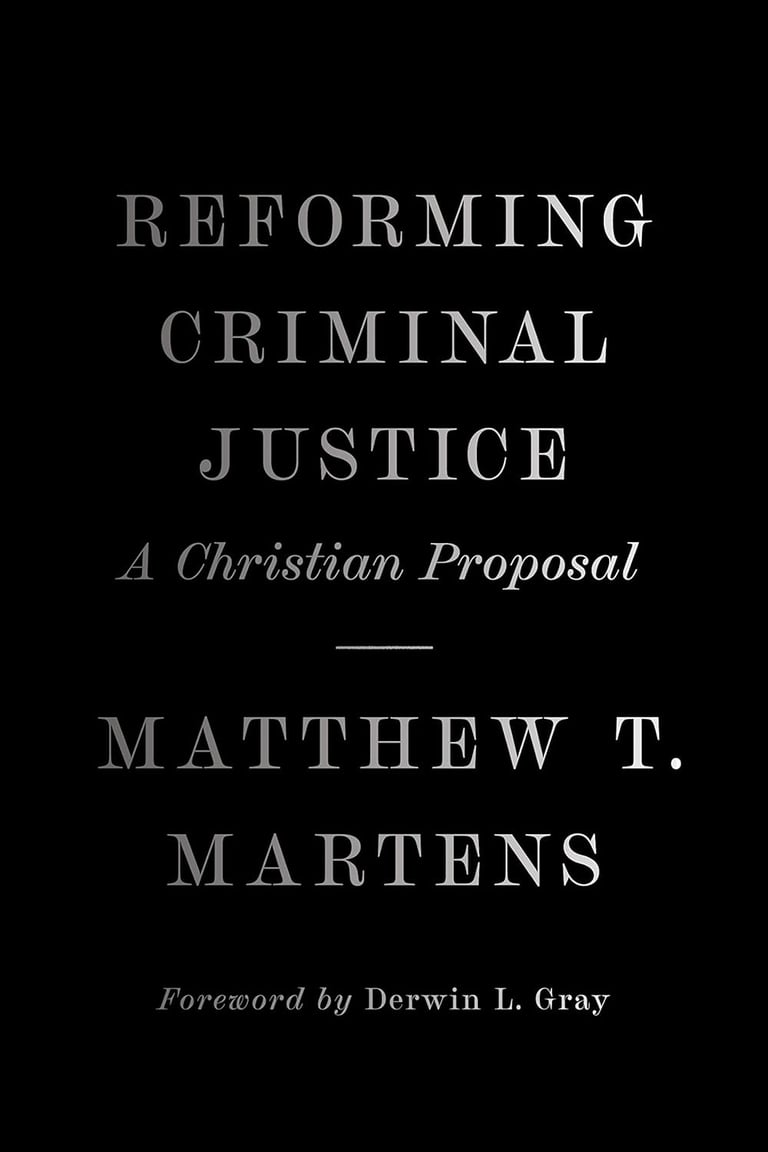

Reforming Criminal Justice: A Christian Proposal
★★★★★
One of the standout aspects of Martens’ book is its ability to bridge the gap between faith and the pursuit of justice. The author brings attention to the moral imperatives found within Christianity and seeks to apply them in a way that can reform and improve the criminal justice framework. Throughout the book, the author raises crucial questions about the fairness and effectiveness of our current legal system. They delve into topics such as punishment, rehabilitation, restorative justice, and incarceration. By drawing upon both biblical principles and legal expertise, they present a compelling case for reevaluating and reforming criminal justice practices. The author demonstrates a deep understanding of said legal frameworks and successfully weaves this knowledge into a Christian perspective. By doing so, they highlight the flaws within existing laws and policies, challenging readers to consider alternatives that align better with what our Lord and Saviour Jesus Christ values: compassion, forgiveness, and redemption. One of the strongest points of the novel is when Martens emphasizes the importance of individual responsibility and societal healing. They argue for a paradigm shift that prioritizes restorative justice processes and community support to address the root causes of crime effectively. The proposal encourages readers to consider how their faith can guide their individual actions within the context of a society seeking to restore and heal rather than merely punish.
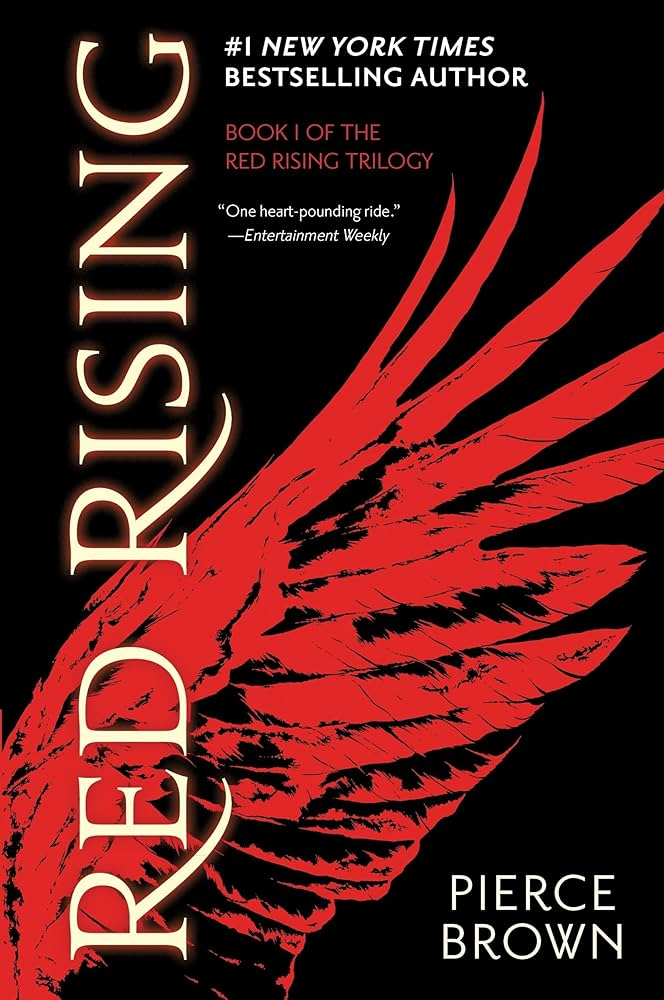

Red Rising
★★
Pierce Brown’s world-building is undeniably ambitious. Set in a time where society is divided into a rigid caste system based on colours, the narrative tries to focus on class struggle. However, while the premise is intriguing, the execution was derivative. The societal structure followed a predictable patterns, and the exploration was glossed over in favour of drama and action. There was potential here. At least until it was overshadowed by plot-driven events and excessive violence. The protagonist, Darrow, is a classic Gary Stu whose journey is central to the series. While his quest for justice is understandable, his character arc wasn't at all organic development. Some readers may find his resilience admirable, but for others, his repeated hardships come across as somewhat contrived, making his motivations feel less earned as the series progresses. The dark humour also didn't do him (or any other characters) justice. There was also inconsistent pacing with the series as a whole. While the first book pulls readers in with high stakes, later books fall victim to unnecessary filler and repetitive plotting. Like the side character, Cassius. His introduction and upbringing felt plausible, but his ending was just terrible. For those who identify with the Golds, or those who might appreciate their ruthless behaviours, the series could resonate more deeply with more righteousness to it. But for many, the Red Rising series will certainly leave readers hanging on the spiritual aspect. Serious. That depth readers should crave after simply isn't in this series.
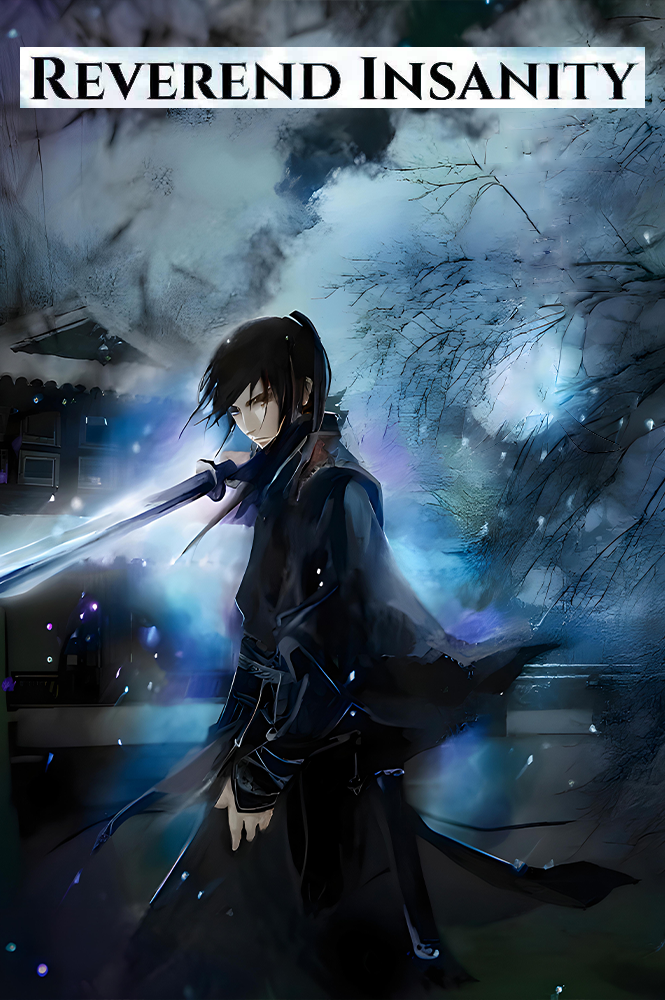

Reverend Insanity
★★★
We read Reverend Insanity—or at least, we tried to—and we honestly believe it is a waste of time for anyone who has. The book was far too long, with more than a million words. While impressive, the story neve even finished. No real ending, no satisfying payoff—just an abrupt halt after what felt like an exhausting marathon. What drew us in initially was the promise of time travel. That concept alone kept us curious enough to keep flipping through pages, but truthfully, most of us ended up skimming. The pacing was uneven and the writing was stretching scenes just to fill space. Most book series tends to do that. It began to feel less like storytelling and more like a deliberate effort to consume the reader’s time. The main character, Fang Yuan, was another difficult aspect. He was outright evil. He manipulated, lied, and used everyone around him without the slightest hint of remorse. While the author clearly intended to present a “clever” anti-hero, it came off as too much cruelty. When success is built entirely on exploitation and deception, eventually thing will stop growing. And that's exactly what happened with his novel. The book itself was soaked in occultic influences that made us uncomfortable. There was no light, no moral anchor, just an endless cycle of survival at any cost. That tone wears people down quickly. And the whole situation surrounding the author didn’t help. Reports say he was imprisoned in China, and then the story was discontinued without a clear explanation. At the end of the day, the story was draining, dark, and left unfinished. We would never recommend it to anyone.
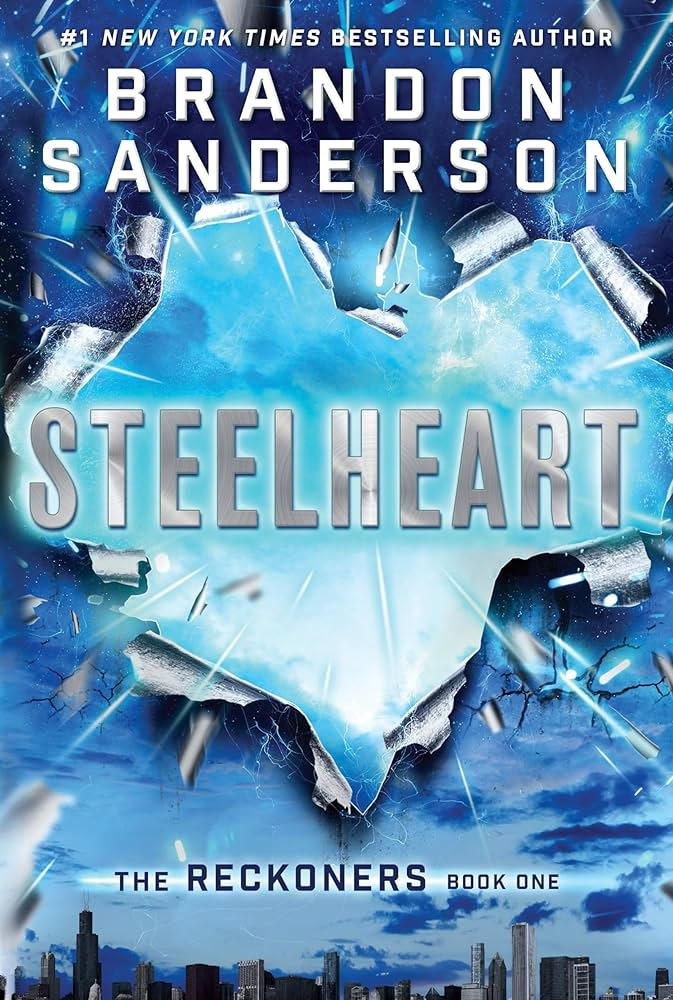

Steel Heart
★★
Yet another premise of superheroes turned villains in a dystopian world. While this overused trope has some potential, Sanderson's execution left a lot to be desired. The book didn’t live up to the hype despite the promise in the premise being met. The powers is where Steelheart really falls short. We were expecting inventive, mind-blowing abilities from these Epics, but what we got instead were powers that felt basic and, at times, downright dull. There’s very little depth to how the powers work, and they don’t come across as particularly interesting or exciting. The characters spent too much time talking about the Epics’ powers than actually dealing with them in meaningful or creative ways. That results in the stakes feeling much lower than they should be. The action sequences, though frequent, also felt more like a checklist of "fight scenes" than anything truly impactful. Then there’s David Charleston, our protagonist. If you’ve ever read a superhero story before, you’ll probably recognize his character immediately: the "reluctant hero" driven by vengeance and a thirst for justice. Unfortunately, David's quest felt more like a plot device than motivation. He’s corny and self-assured to a fault, constantly delivering quips and sarcastic one-liners that come off as forced and annoying rather than endearing. It felt like the book was trying too hard to make him the cool, witty hero, but it just made him harder to take seriously. The supporting characters don’t add much to the story either. Steelheart ultimately felt like a missed opportunity.
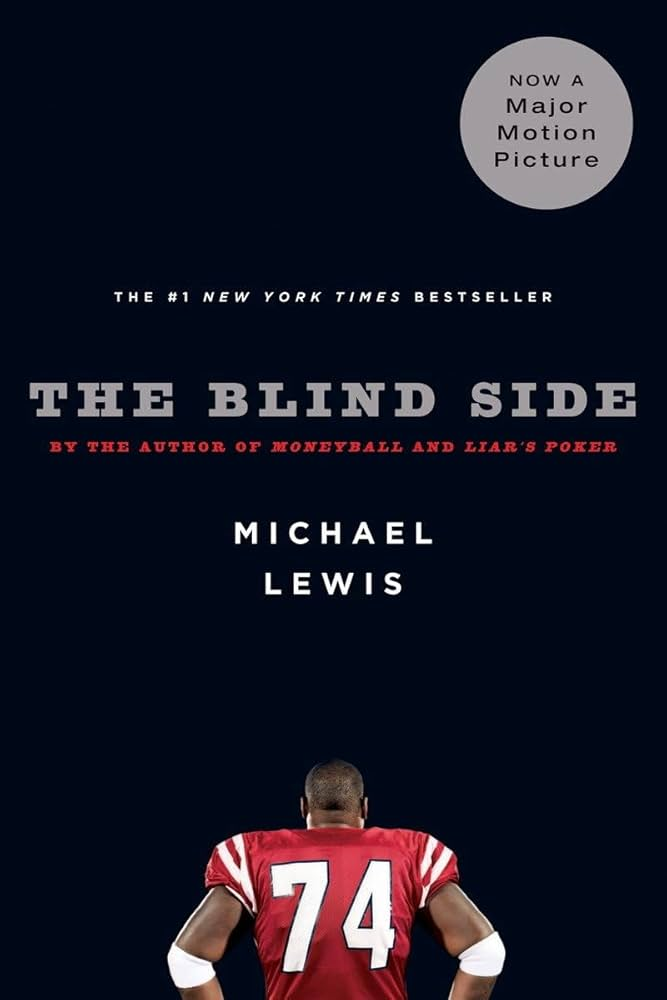

The Blindside
★★★
We honestly cannot believe how overrated this was—both the book and the movie. It’s hailed as an inspiring story, but when you dig into it, it’s more patronizing than anything else. Michael Lewis’ book tries to frame it as a tale of kindness, opportunity, and a "rags-to-riches" transformation. Yet the narrative felt incredibly shallow and problematic. The whole thing centers on this idea that a rich White family rescued a poor Black child from the streets; which, in itself is Ludacris. The way Oher’s own agency and accomplishments get overshadowed by the constant glorification of the Tuohy family is insulting. Sure, they gave him a place to live, but it’s clear they’re portrayed as these heroic figures who “saved” him, which undermines everything Oher worked for on his own. It felt like the book was more about the Tuohys’ good deeds than Michael’s journey, reducing him to a mere vehicle for their narrative of self-congratulation. And the movie, despite its potentially transgender cast (Sandra Bullock), didn’t do the story any justice. It watered down the complexity of the situation even more, focusing on sentimentalism and surface-level drama. The portrayal of the Tuohys as these saintly, selfless figures just doesn’t hold up when one thinks about the larger context of other families. It's a shame how their acts felt more like a marketing gimmick than an actual dive into the world's real issues. What's even more troubling is that it's become a classical tale to teach in American schools.
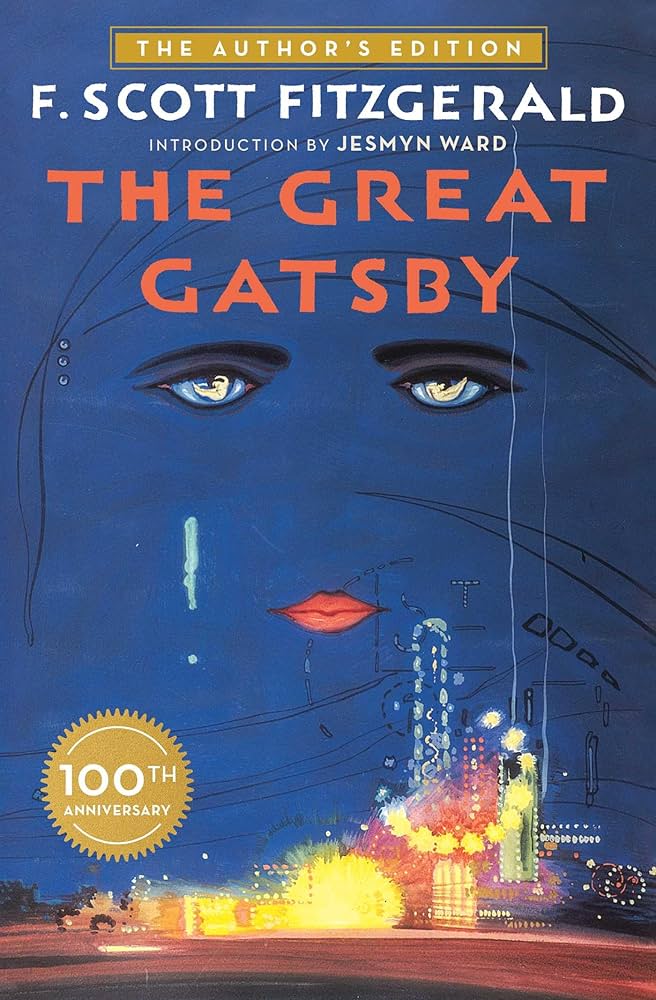

The Great Gatsby
★★
We were only a little excited to read this book when it was released. But after finishing it, it did not live up to the hype. One of the main issues was the characters. Gatsby, the supposed “great” one, never really came across as someone worth admiring. From the moment he's introduced, he's less of a mystery and more of a typical rich man. And by the end, he just felt like a tragic figure without much substance. The way he’s built up throughout the story didn’t make us feel like he earned the title of “great.” It felt like the story was more about the people around him, who were mostly shallow and self-absorbed. The plot itself also didn’t quite grab us. It moved slowly, and it seemed like nothing significant really happened until the very end. Even then, the resolution still didn’t feel satisfying. We were left wondering if it was all really worth it, given how little we learned about Gatsby's past and his real motivations. Nick, the narrator, also didn’t help. His perspective on events was inconsistent, and he didn’t seem to have a strong opinion on much. This made it hard to care about his journey. He wasn’t a reliable guide through the story, and by the end, we didn’t know what lessons we were supposed to take away. The overall theme of the American Dream felt dated. While we get that there’s emptiness in chasing wealth, it didn’t offer much new insight. The writing was fine, but the story just didn’t hit us in the way we hoped it would. It felt more like a study of people we didn’t care about rather than a deep exploration of anything meaningful. Because remember, folks, to live out the American Dream, you have to first be asleep.
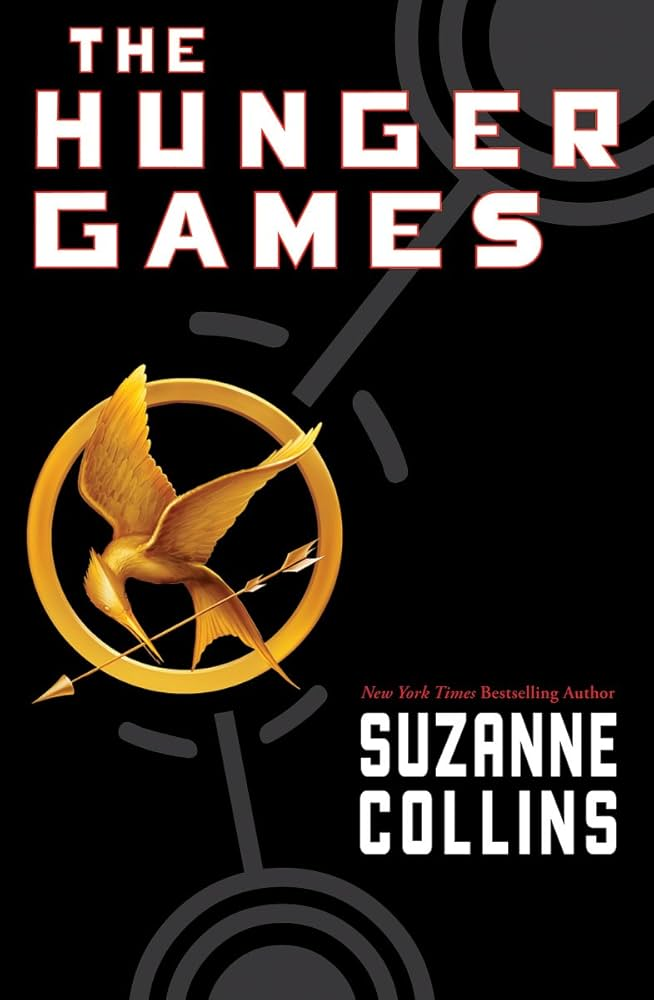

The Hunger Games
★★
We really struggled with this series. While it’s a popular and widely acclaimed series, it's troubling in many aspects, especially regarding its portrayal of women. While Katniss Everdeen, the protagonist, is undoubtedly a strong character, the series as a whole has a more negative, empowering view of women. They are largely reduced to being pawns in a system that uses them for survival, manipulation, or romantic entanglements. The relationships themselves are presented more like a contest for male affection rather than focusing on the main character's development. It’s as if the female protagonist’s role is too often centered around competing for love, rather than focusing solely on the fight against injustice. While Katniss is strong, there’s an underlying tone that suggests her value is ultimately tied to the men in her life, which feels like a missed opportunity for a more nuanced portrayal of women in such a crucial role. Another glaring issue is the central concept of the Games themselves; the forced sacrifice of children for sport. The districts, and the system that divides them, are disturbingly cruel. The idea of using children as entertainment for the Capitol’s amusement is not just a plot point, but a reflection of a deeply broken system that dehumanizes the readers that picks up this book. The violence, especially involving children, is extreme and unnecessary. The book seems to glorify this bloodshed as a way to convey the gravity of the dystopian world, but the reality is far more disturbing. Just that concept alone should have been abolished long ago.
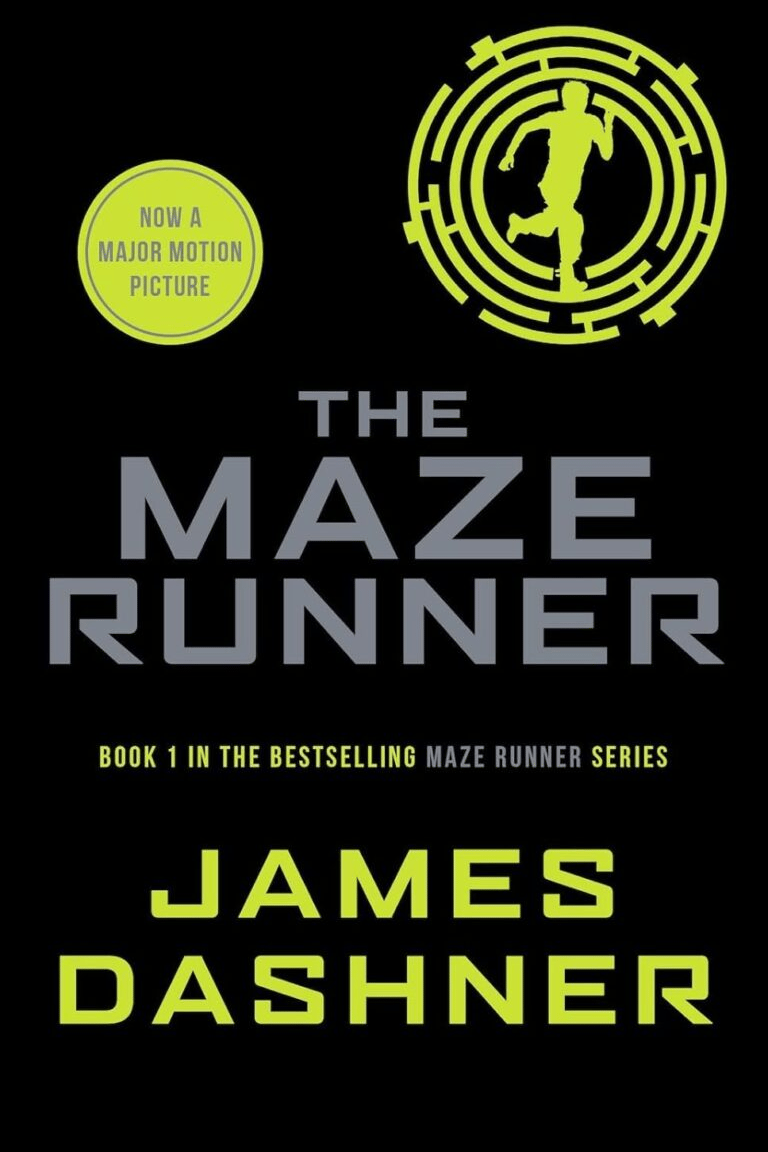

The Maze Runner
★
This was not an enjoyable book, and the hype around it—well—there never should have been any. While the premise had potential—a mysterious maze, a group of teens with no memories, a hidden organization pulling the strings—it eventually falls flat toward the end. The execution was only alright, and the book felt like a puzzle that never quite came together. There were too many questions and not enough meaningful answers. For instance, the expectations of a high-stakes challenge was never truly met. Most of the book was filled with confusing slang, repetitive dialogue, and characters running in circles. Both literally and figuratively. When the action does pick up, it wasn't rather than exciting per say. Thomas, the protagonist, was difficult to connect with. His character development was minimal, and we’re given little reason to root for him beyond the fact that he’s the main character. Teresa’s role is similarly underdeveloped, and the forced telepathic connection between her and Thomas came off as lazy storytelling rather than an intriguing twist. Most of the other characters also felt like expendables. Oh wait, it's because they were! What frustrated us most was the lack of real answers. The mystery behind the actual maze was dragged out so long that it stopped being intriguing. As a Christian, we should have seen this coming since the organization behind it all was called "WICKED". It is very easy for to say not to get invested in this story.
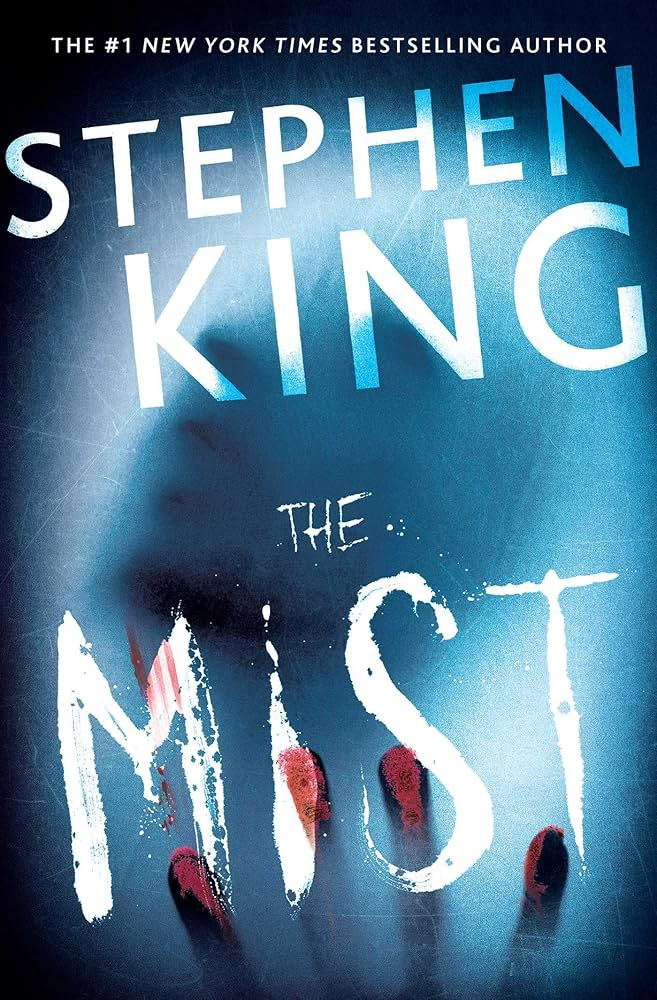

The Mist
★
The consensus for this book was clear: it was a troubling and ultimately unpleasant experience. Once again, Stephen King veered into territories he should not have. From the beginning, the story throws readers into an already broken down world with nightmarish creatures emerging from an unnatural mist. That premise couldn't have been more senseless. Yes, those are devils. Butt hose devils came from the breakdown of man's morality, hope, and spiritual weaknesses. That just showed how dark the spiritual tone of the book was. It also had no clear purpose behind the evil. We as Christians will know that it's because of the their sin, but a newcomer would immediately assume that everyone (including saints) have that in their nature. A notion like that can cause a reader to lean on despair. There was little to no light, no redemptive arc, and no deeper meaning to the suffering. The characters, while flawed, were trapped in a situation that felt both hopeless and spiritually toxic. The ending offered no closure either. Just more darkness, and a somewhat reflection of what's out there in this world. That’s not something anyone should enjoy. Yes, it's thought-provoking, but that's as far as it can get. It never offers an explicit way to handle the devils, and Mr. Stephen seems to revel in the kind of spiritual despair he brings upon his followers. In the end, this is not a book we can recommend. None of Stephen Kings' book are worthy of recommendations.
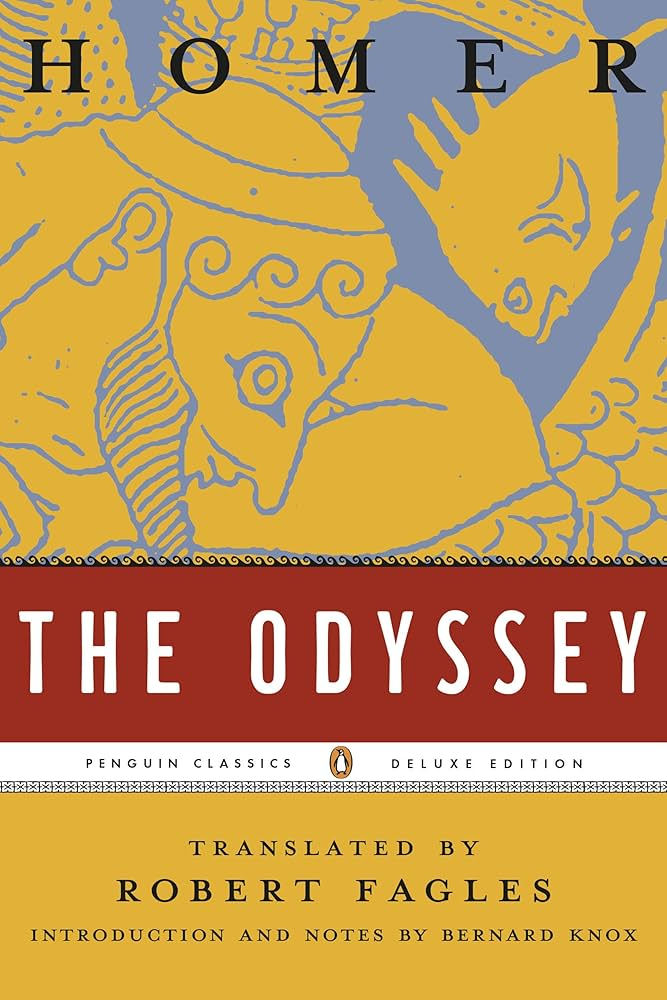

The Odyssey
★★
We didn’t quite enjoy this book as many would think. What’s hailed as a cornerstone of Western literature felt more like a tedious, winding road filled with devils from hell, self-pity, and excessive flashbacks. Yes, Odysseus had a rough journey, but how many times do we need to hear him retell his suffering in drawn-out, overdramatic fashion? Some parts had potential—the Cyclops episode, for example, was entertaining in a campy, B-movie way. But after that, it quickly became bland. The Sirens (which are devils) were more melodramatic than mythical, and the whole Scylla and Charybdis sequence dragged on like a bad dream. The constant theme seemed to be: pick your doom, then listen to Odysseus brag about escaping it. Quite the faithless book. Speaking of Odysseus, calling him a "hero" feels generous. He’s less noble warrior, more manipulative liar. His cunning felt more like deceit—especially when it came to tricking those devils or deceiving his own wife. Penelope’s patience was impressive, but the way Odysseus handled his homecoming was frustrating. The only character we actually rooted for was Telemachus, who showed far more growth and initiative than his father. In the end, The Odyssey reads more like a chaotic soap opera with idol worship, vague morals, and a “hero” whose main talent is lying through his teeth. Mythology fans might find something to appreciate, but for us, it was a chore to finish.
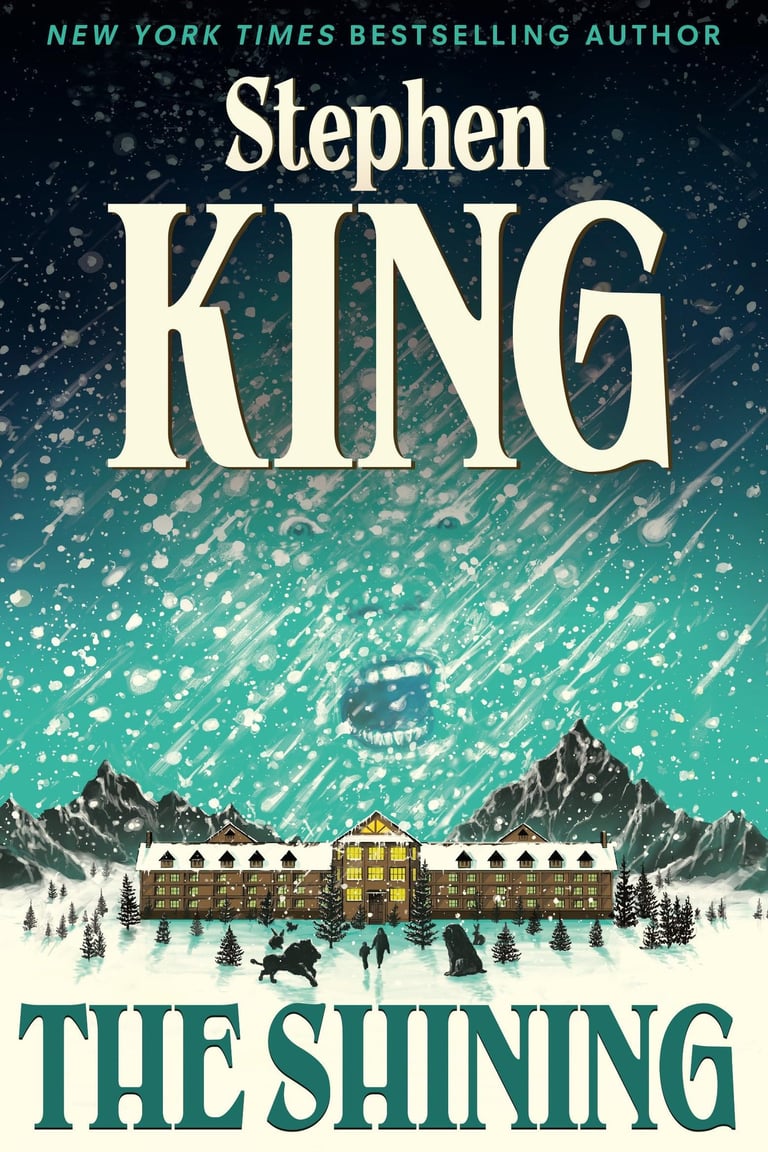

The Shining
★
Reading a book like this will leave a strong, unsettling reactions. Most of them not good. While Stephen King is often praised for his talent in horror, this particular novel felt like more than just a scary story. It dug deep into themes of addiction, violence, and spiritual decay in a way that, for several of us, felt harmful rather than enlightening. However way such a title managed to captivate minds is only showing what direction the world is headed in. What disturbed us most was the imagery and the psychological unraveling of Jack Torrance. All of it was the oppressive darkness that seemed to saturate the book from beginning to end. There was little sense of redemption, and the overwhelming tone of despair left some of us feeling spiritually drained. The haunting atmosphere is enough to give the reader emotional heaviness. The children mentioned in this book only tried to show how vulnerable and exposed they are to the devil's devices. While Mr. Stephen may have been trying to explore the power of innocence against corruption, the book lingered far too long on suffering with little payoff for enduring it. It's ideal to make mention of the film adaptation by Stanley Kubrick, a figure well known in the conspiracy community. What makes his him worth mentioning is that this is the same director who filmed the fake moon landing. Where the movie failed, the book also failed. Not failed as in poor reviews, but failed as in constantly emphasizing the aspects of evil within a family. That is mainly why we cannot recommend it.
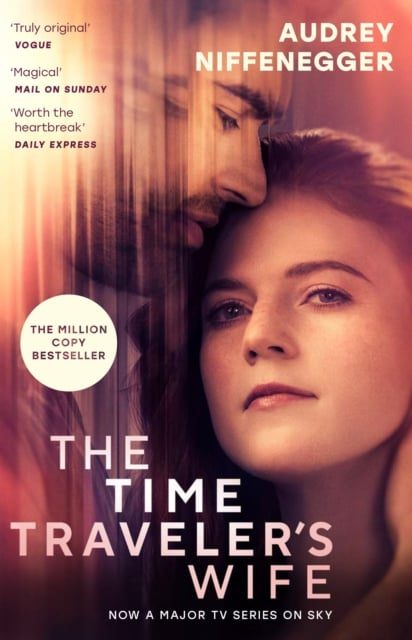

The Time Traveler's Wife
★★★★
If you've been keeping up with us, you'll know that time traveler tropes are simply too interesting to pass up. Our read of this wasn’t a terrible one. But we still had mixed feelings. The story centered on a romance involving time travel, which was definitely an interesting idea. However, we felt the concept of time travel itself was a bit overlooked and not quite handled correctly. That made parts of the story feel confusing or inconsistent. Still, they did an applause-worthy attempt. Another thing we noticed was that the male character only sometimes knew what he was doing despite his "disorder". While relatable, it did make things a little unusual. Which again, is not necessarily a bad thing. It just stood out since it’s the female character that should have responded better. Either way, things between the two main characters was heartfelt and touching, and the romance was the strongest part of the book. The movie adaptation did a better job at bringing the story on screen. The visuals and performances helped clarify some of the story’s complexities that the book didn’t fully explain. The book itself was an average read for the supernatural genre. Not bad, but not exceptionally perfect either. It had its moments. It’s just the time travel aspect could have been developed with more depth and consistency. Perhaps better characters, as well. We won't recommend it, but we will state that it was interesting in terms of the plot and twist within the pages. And if the reader's been keeping up with us, they'll know that time traveler tropes are simply too interesting to pass up.
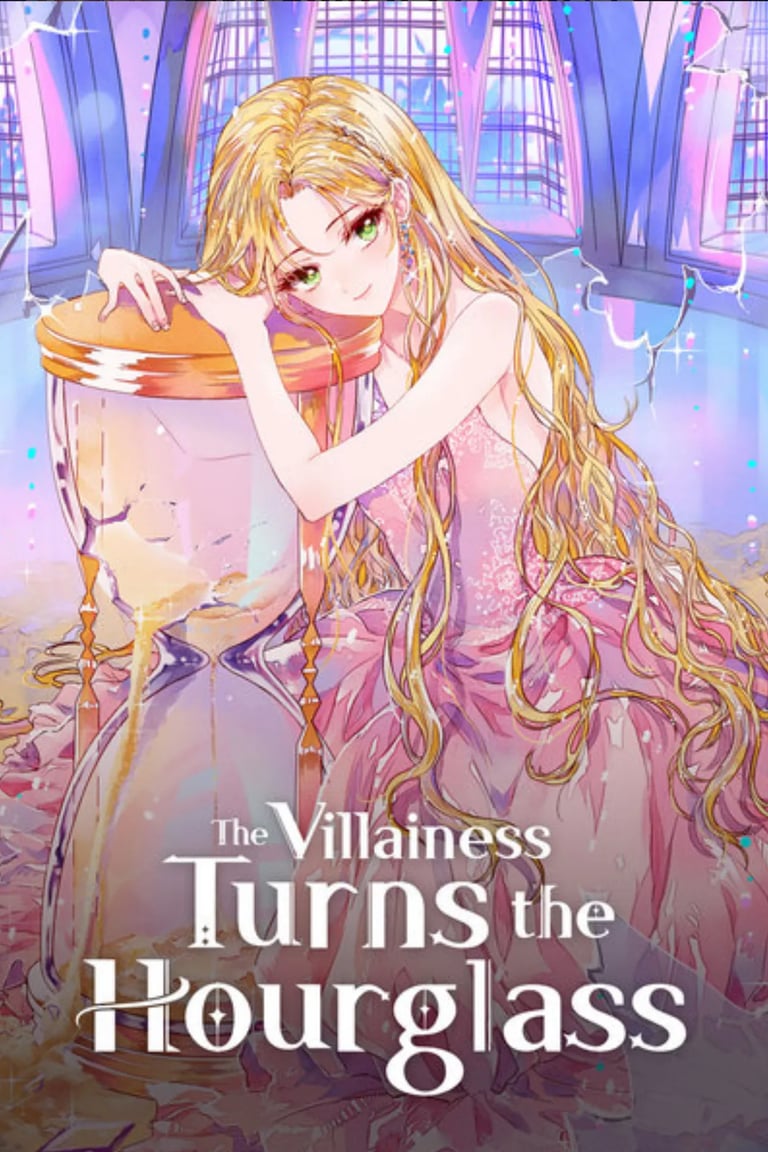

The Villainess Turns The Hourglass
★★★
A female lead can hardly ever be done right. This book, however, managed to prove us wrong. It had a premise that seemed promising, mainly due to the time-reversal plot. The idea of a protagonist traveling back in time and essentially getting a "second chance" at is sometimes an intriguing one. She's also able to manipulate time backwards with said hourglass. That in itself gave the story a unique twist. The fantasy-driven aristocratic setting also provided a comforting backdrop, and the world-building had its moments of potential. However, the magic aspect, particularly the witch-related elements, didn’t sit well with us. Because of that, it felt very off for us on a thematic level. The use of magic and witchcraft just didn’t align with the kind of story we were hoping for. The romance was another major letdown. The repetitive crown prince falling for the female lead is overly familiar and, frankly, boring. It didn’t offer anything new or exciting, and the dynamic between the two characters felt forced and clichéd. Their relationship was also one of the more predictable aspects of the book. While the time travel concept and aristocratic lore always has potential for almost any tale, the book falls short due to its reliance on repetitive tropes and the overuse of magic. Not entirely uninteresting, but not enough to recommend. Bare in mind that the story did receive a comic book adaptation due to its impeccable story-telling. The artwork in the comic book was fair and stayed true to the novel. But at the end of the day, both fell short.
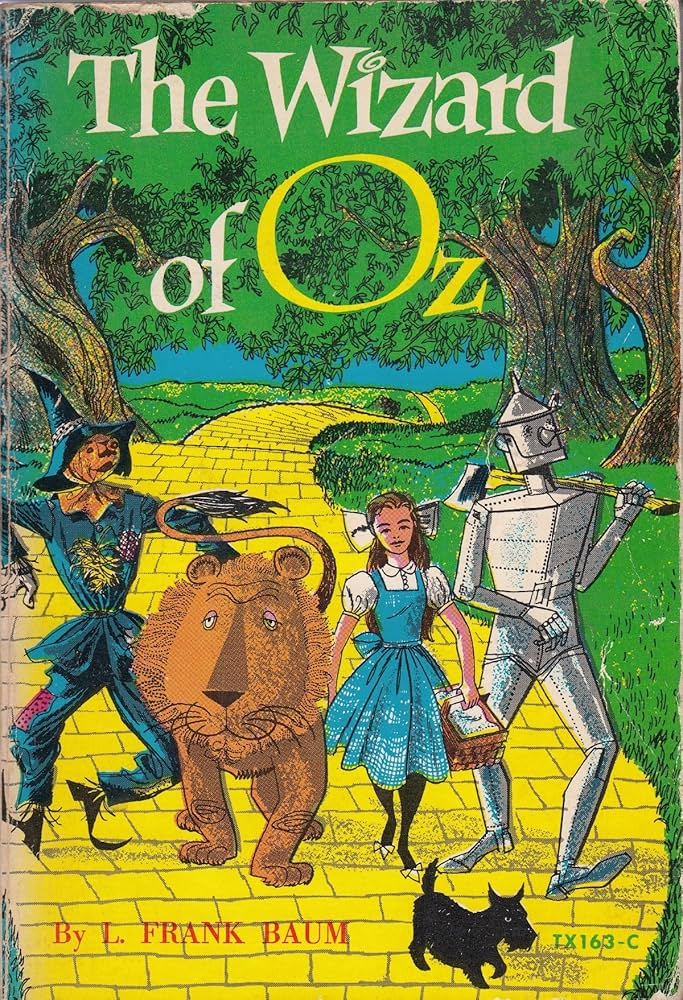

The Wizard Of Oz
★
Quite the disturbing tale from this so-called children’s classic. On the surface, it’s a whimsical fantasy, but reading closely, we saw troubling elements that raised serious questions about the story’s purpose and the mental harm it may cause. First, the story felt rife with hidden conspiracies and coded messages. Baum embedded subtle propaganda promoting blind faith in questionable authority figures such as the Wizard, who pretends to be all-powerful but is ultimately a fraud. This glorification of deception under the guise of wisdom is manipulative. The book suggest that it’s okay to follow false leaders without question, which is a dangerous lesson for any reader, especially children. There was also a troubling emphasis on dependence on magic to solve problems, rather than encouraging genuine growth or moral courage. The characters rely on shortcuts and illusions, and the story seems to normalize escapism from said problems rather than facing them. The land of Oz isn't even close to a real wonder. It's just a spiritual wasteland; full of trickery and superficial charm. The idea that true power lies in a magical, unseen force that can be manipulated was no more than a metaphor for occult influence. The characters' was also one that glorified self-delusion and herd mentality, with Dorothy’s companions blindly following her quest without real understanding. The story itself didn’t encourage personal responsibility or genuine wisdom but instead seemed to promote conformity and dependence. We strongly advises against reading this book, for it’s far from the harmless classic it pretends to be.
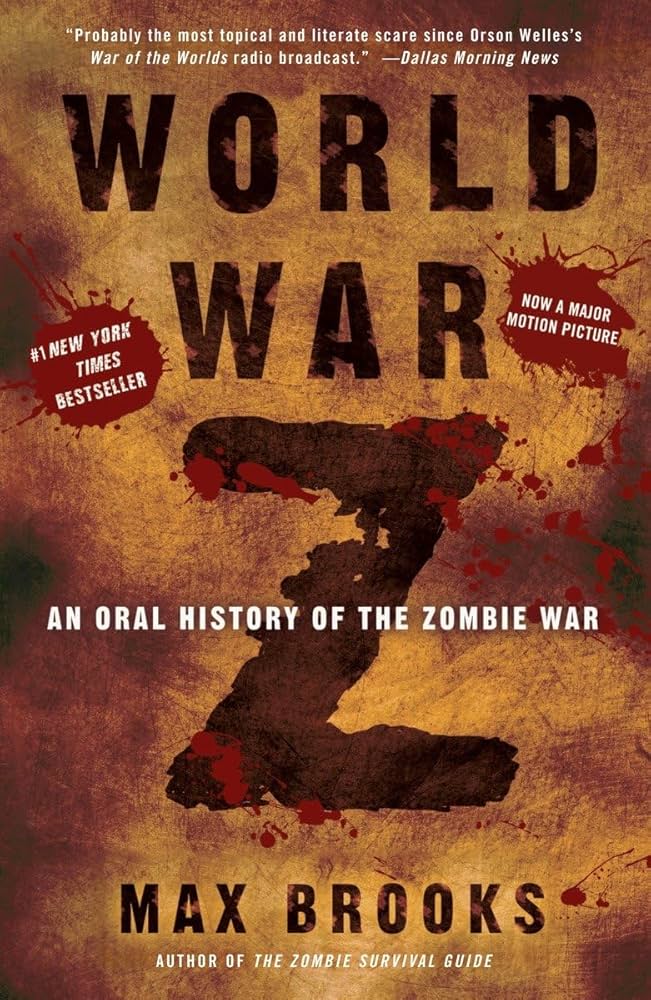

World War Z
★★★
We really struggled with this book a lot. Mainly because it didn’t quite capture the right reaction to a widespread zombie outbreak. The book’s structure, which is presented as a series of interviews and personal accounts, is an interesting approach, but it quickly fell short when it comes to the responses of such an event. It felt like a lot of the characters were more concerned with survival logistics and geopolitical analysis than with the real emotional and psychological impacts of facing down an apocalypse. What bugged us most was that, in a scenario where the world is literally crumbling, the book didn’t always portray the kind of frantic, instinctive reaction people should have. It was almost too clinical in how it described the outbreak, with people talking about it in a detached, analytical way. Sure, we get that the book’s aiming for a broad, sweeping look at the scale of the crisis, but in the face of something like zombies, we would have preferred people to feel expected of these things since they read their bible; a sense of calmness. Instead, there was far too much fear, panic, and confusion. That just proves how indoctrinated many are when the apocalypse does unfold. Additionally, the book did rely a bit too much on political and military perspectives, which overshadowed the element of the story. While the logistics of dealing with a zombie war might be important, we found ourselves wishing for more personal, raw reactions to the horror. The interviews with survivors also didn’t ring true, with some characters offering too much reflection and analysis instead of the gut reaction one might expect in such a low-stake situation.
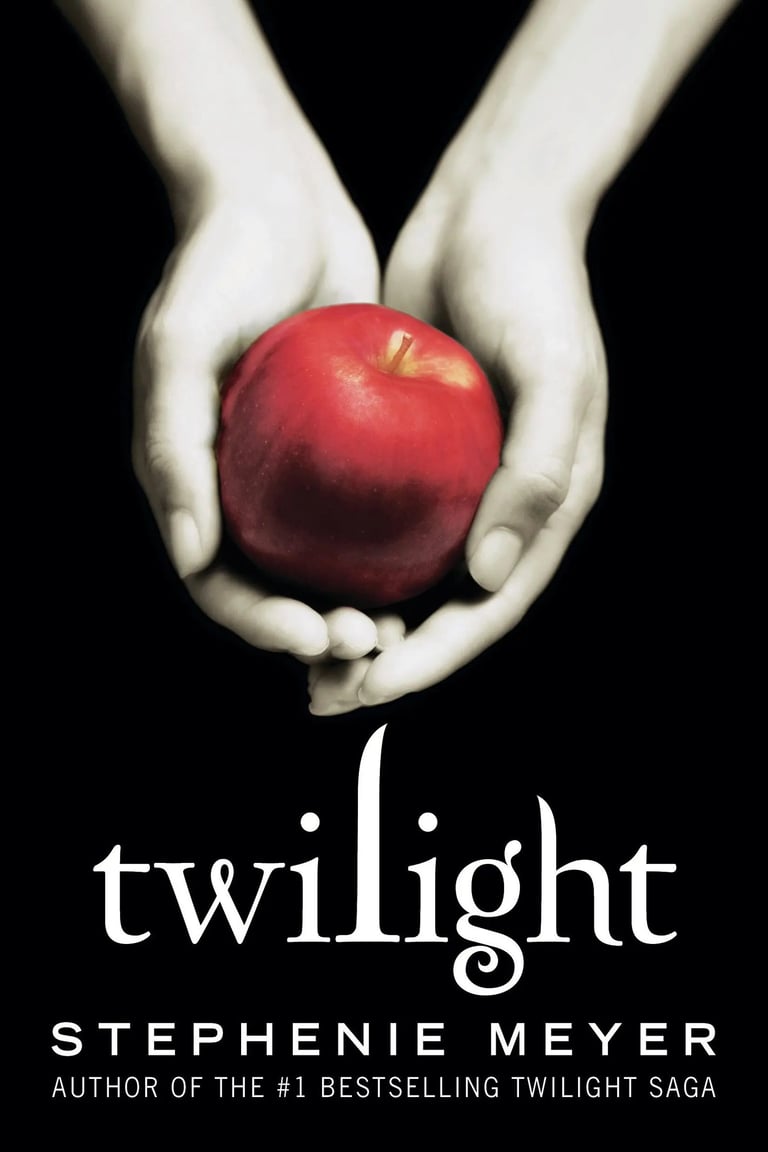

Twilight
★
As Christians, we should all have serious concerns about this ridiculous series. That includes both the books and the movies. While it has a massive following, the series promotes unhealthy relationships and dark, occult themes. The romance between Bella and Edward is especially troubling. Their relationship isn’t one of mutual respect but obsession and control. Edward’s possessiveness and constant decision-making for Bella, without her consent, sends a dangerous message about what love should look like. It’s a far cry from the healthy, Christ-centered relationships we are called to embrace. Let us also remind the reader that this is an age-old vampire mentally abusing a little girl until she, too, becomes a soulless creature. The supernatural elements were too problematic. Consider how the glorification of vampires and werewolves, creatures from hell, is concerning. These beings are romanticized as desirable, eternal, and morally conflicted, which directly contradicts biblical teachings about light and darkness. The idea that evil, supernatural creatures can be portrayed as beautiful and heroic distorts the line between good and evil. What’s worse is the trend this series had started. Many young adult authors are jumping on the vampire and supernatural romance bandwagon, which is promoting the same troubling messages. It’s a trend that encourages unhealthy relationships and spiritual confusion. Any type of trend that glorifies dependency on unhealthy relationships is not a trend to follow.
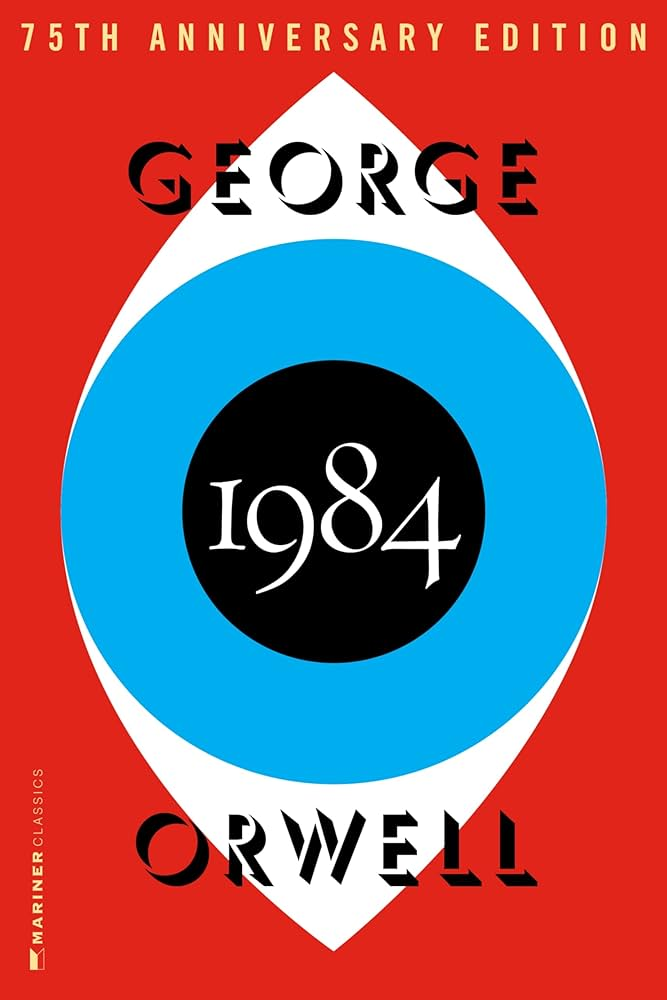

1984
★
First, we'd like to apologize for showcasing this book. Not just because it's a terrible book, but because (by the cover), it is very evil. By no means is this a good book, especially when the story is extremely disturbing. The novel is a bleak vision of a world where totalitarianism reigns and personal freedom is nonexistent. The surveillance, manipulation of truth, and the power of Big Brother are elements that are honestly being seen in today's society. Seriously. We are already slipping toward something like it. The notion of constant surveillance, the rewriting of history, and the suppression of individuality. Our friends, this is by no means a dystopian fiction; it’s been becoming real in various parts of the world. Watching Winston's descent into despair felt like watching a disturbing idea being fulfilled by the devil. Someone ought to have changed the genre to horror. Big Brother, the Party, and the whole system of control in the novel is nothing more than a malicious force, an embodiment of everything we should despise about unchecked power. The way the Party enforces its will on people—through fear, lies, and cruelty—is what we do not stand for as born again Christians. Orwell’s exploration of this manipulation of truth is just another reminder of how vulnerable the masses are to the evil forces that shape their world. By no means can we appreciate it or recommend this documentary to anyone. Be they truth seekers or conspiracy researches, it is not worth looking into.
